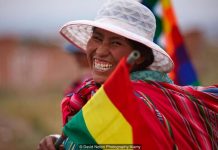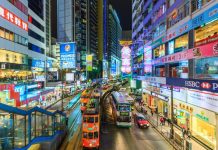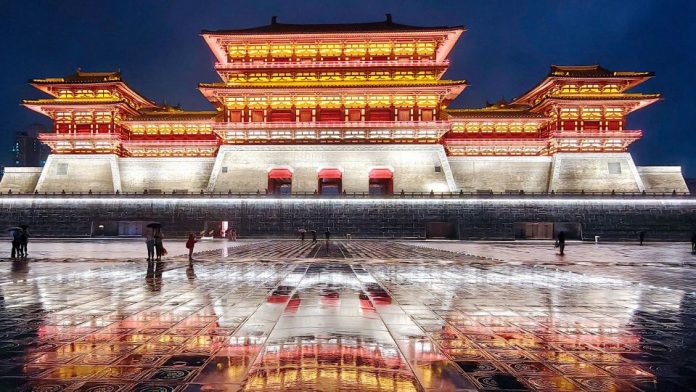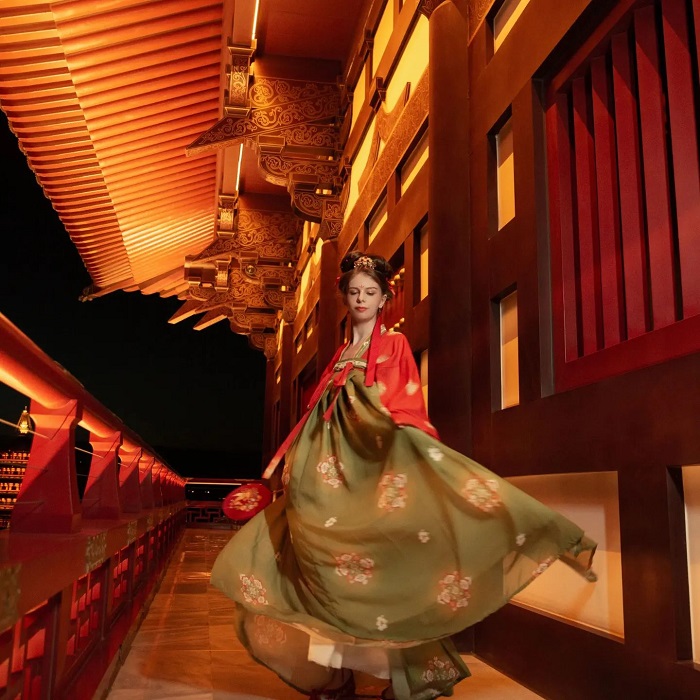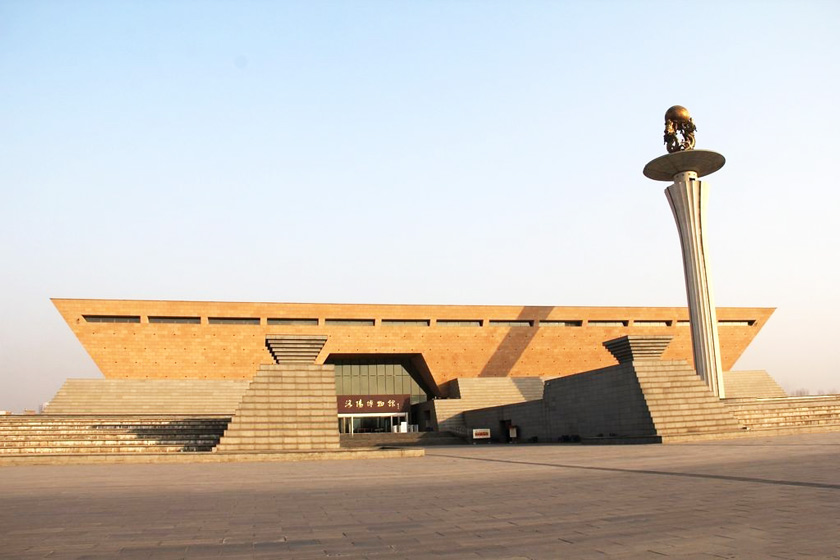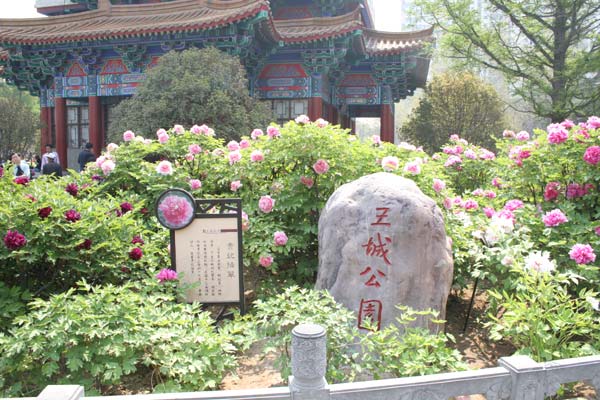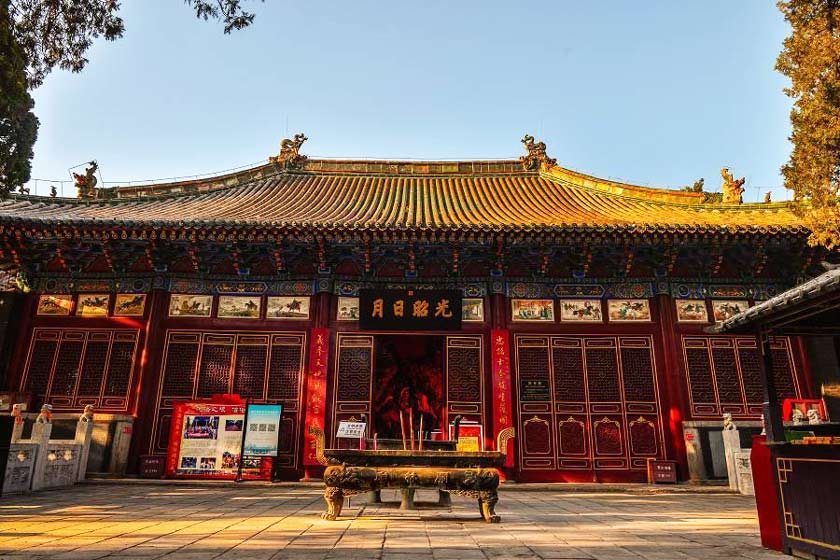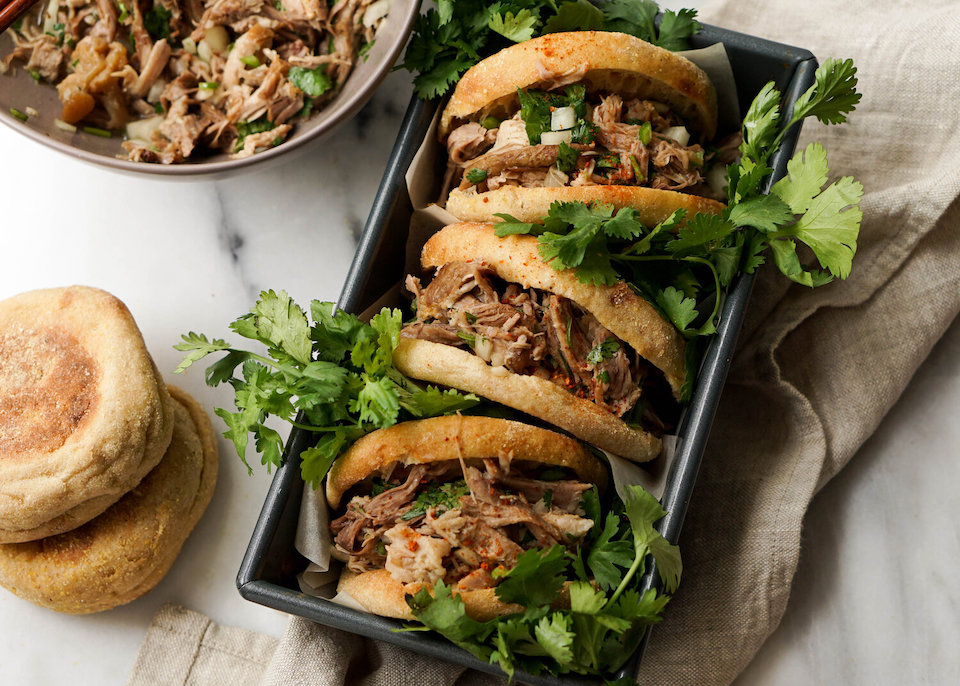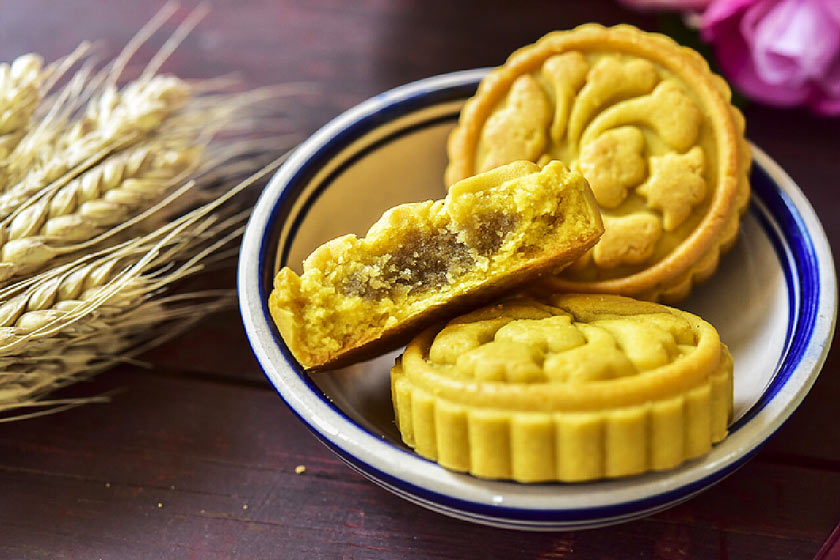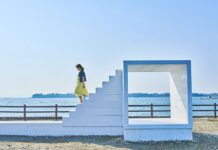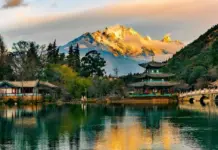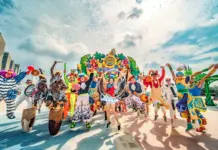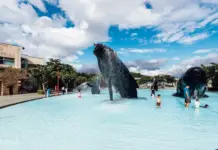For those who love to learn about Chinese history and culture, Luoyang with its thousand-year history is a favorite destination if you have the opportunity to visit China. In addition, Luoyang also owns many famous landscapes and is the cradle of Chinese civilization. So, is Luoyang worth visiting, what to do in Luoyang? Let’s check out our Luoyang travel blog with the fullest Luoyang travel guide for first-timers below!
- The ULTIMATE Yunnan Travel Guide for Independent Travelers
- Sunac Land Guangzhou review: A Four-Season Entertainment Experience
- 48 Hours of Cherry Blossom Viewing in Beijing for First-Time Visitors
- Visiting Lingering Garden in Suzhou – One of the Four Great Chinese Classic Gardens
- The ULTIMATE Forbidden City travel guide: How to visit, things to do, tips & MORE
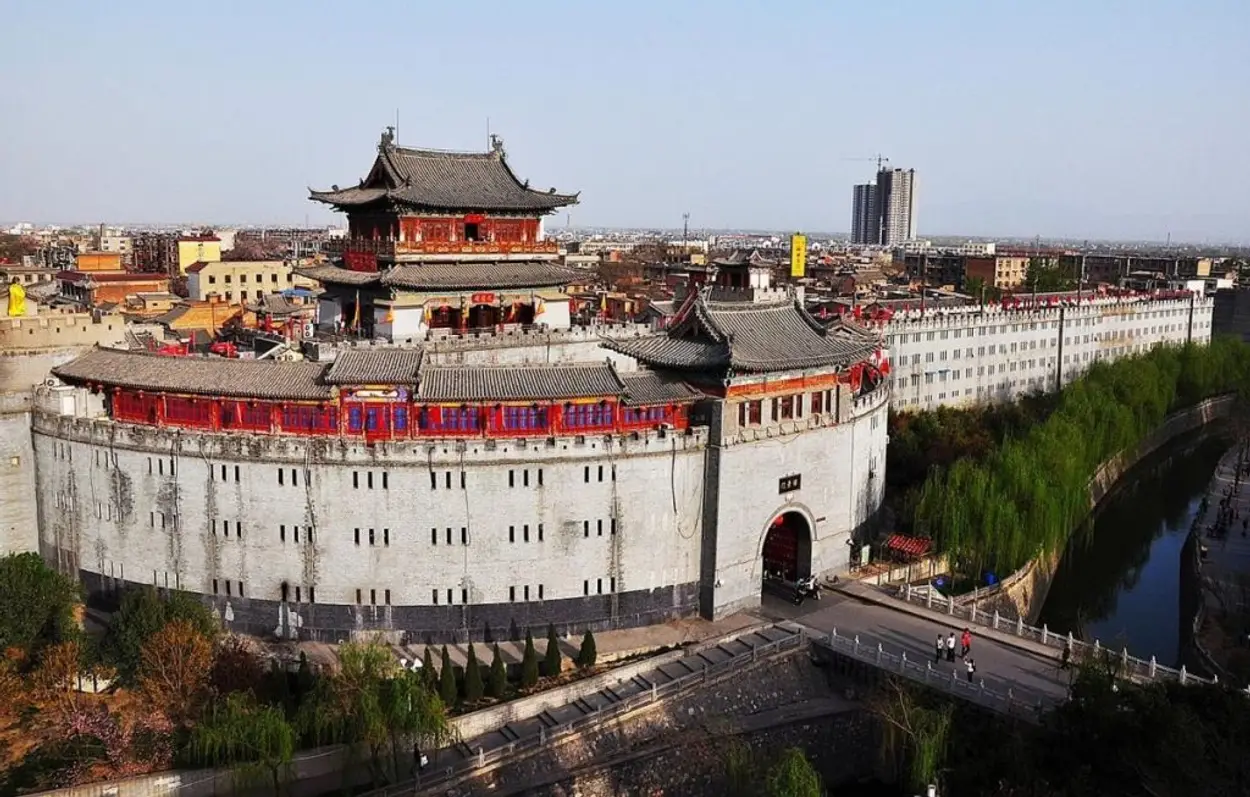
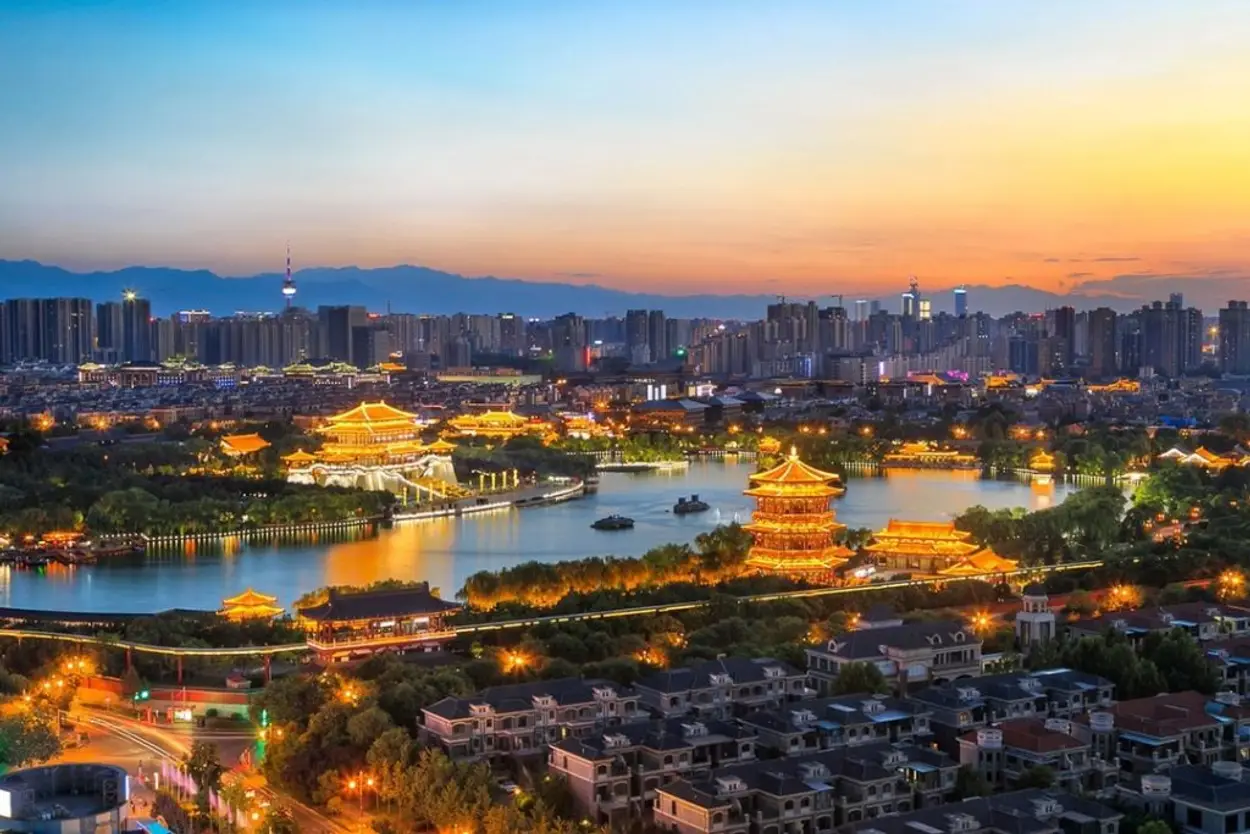
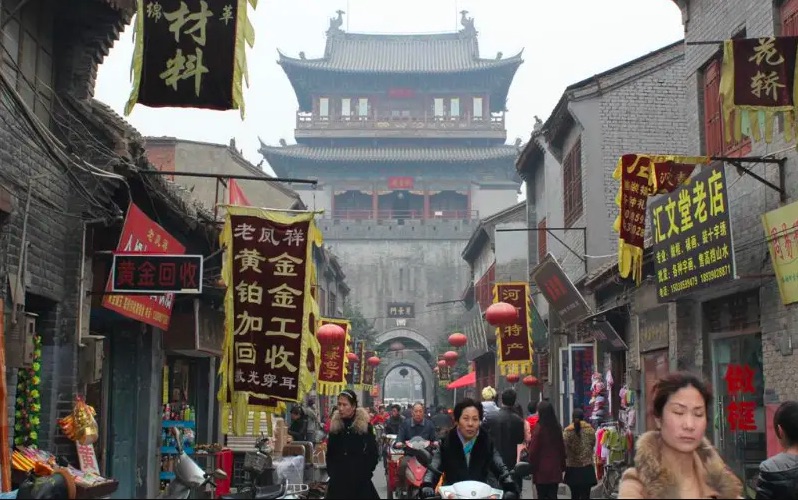
Luoyang used to be one of the most bustling cities in the world during the Tang Dynasty. It has a history of more than 3,000 years, is proud to be the capital of 13 famous feudal dynasties, and is an attractive destination for tourists from all over the world. With a history of thousands of years, this place preserves countless valuable historical and cultural relics. When you set foot here, you will feel the tranquility of ancient temples, towering defensive walls, or simply small streets with rows of ancient trees… Luoyang appears like a beautiful ink painting.
A few words about the ancient capital Luoyang (#Luoyang travel guide)
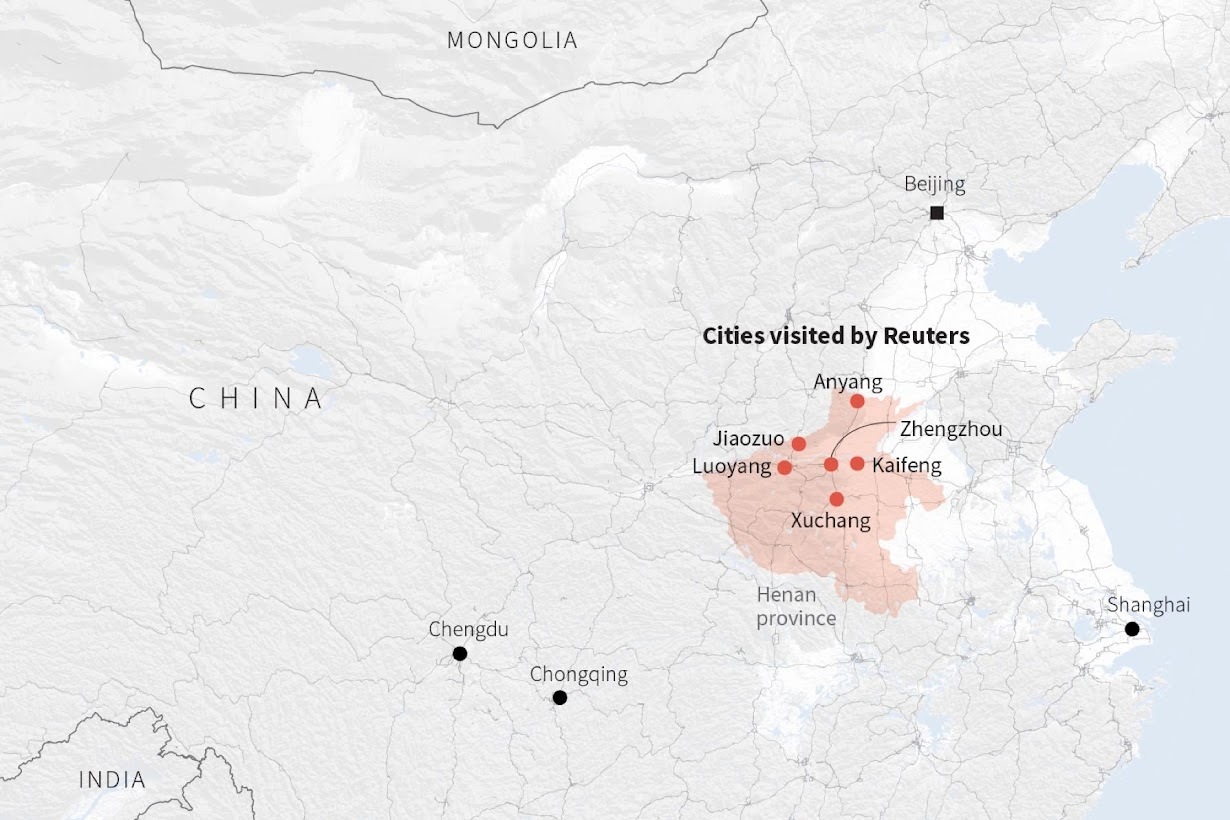
Luoyang also has other names such as “Dongdu (Eastern Capital)”, “Xijing (Western Capital)” or “Jingluo”. This is one of the largest and busiest urban areas in the Tang Dynasty. After more than 3,000 years of history, through 13 feudal dynasties, this is considered the cradle of Chinese civilization.
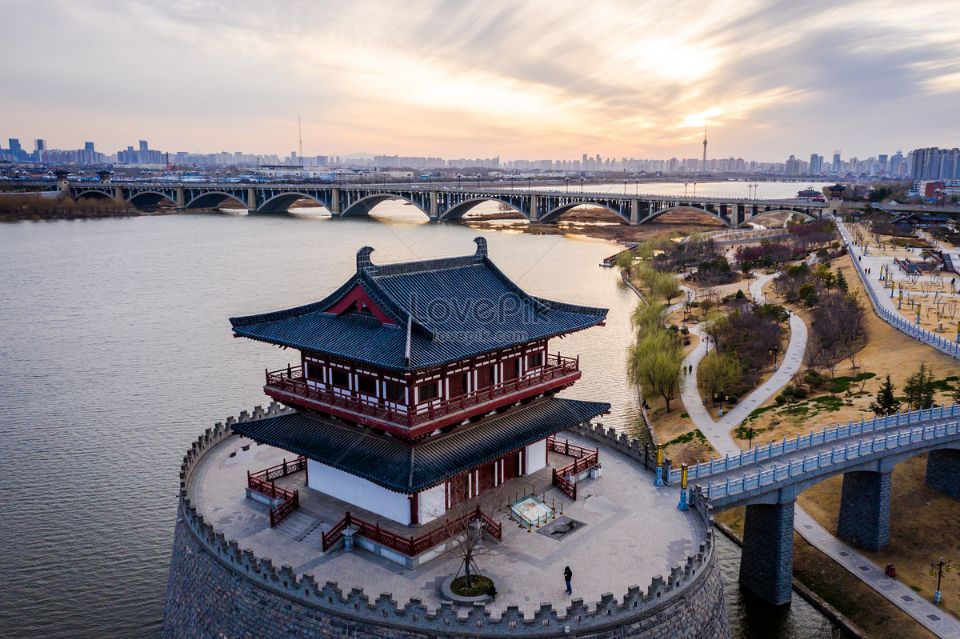
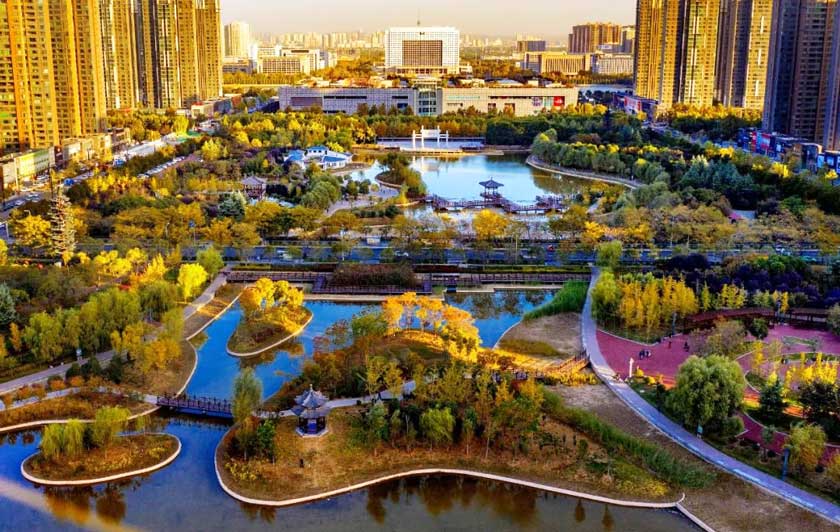
Luoyang city belongs to Henan province, with a rich history and culture of China. The name Luoyang later comes from its location on the banks of the Luo River. For many centuries since its formation, Luoyang has always been the economic and social center of ancient China.
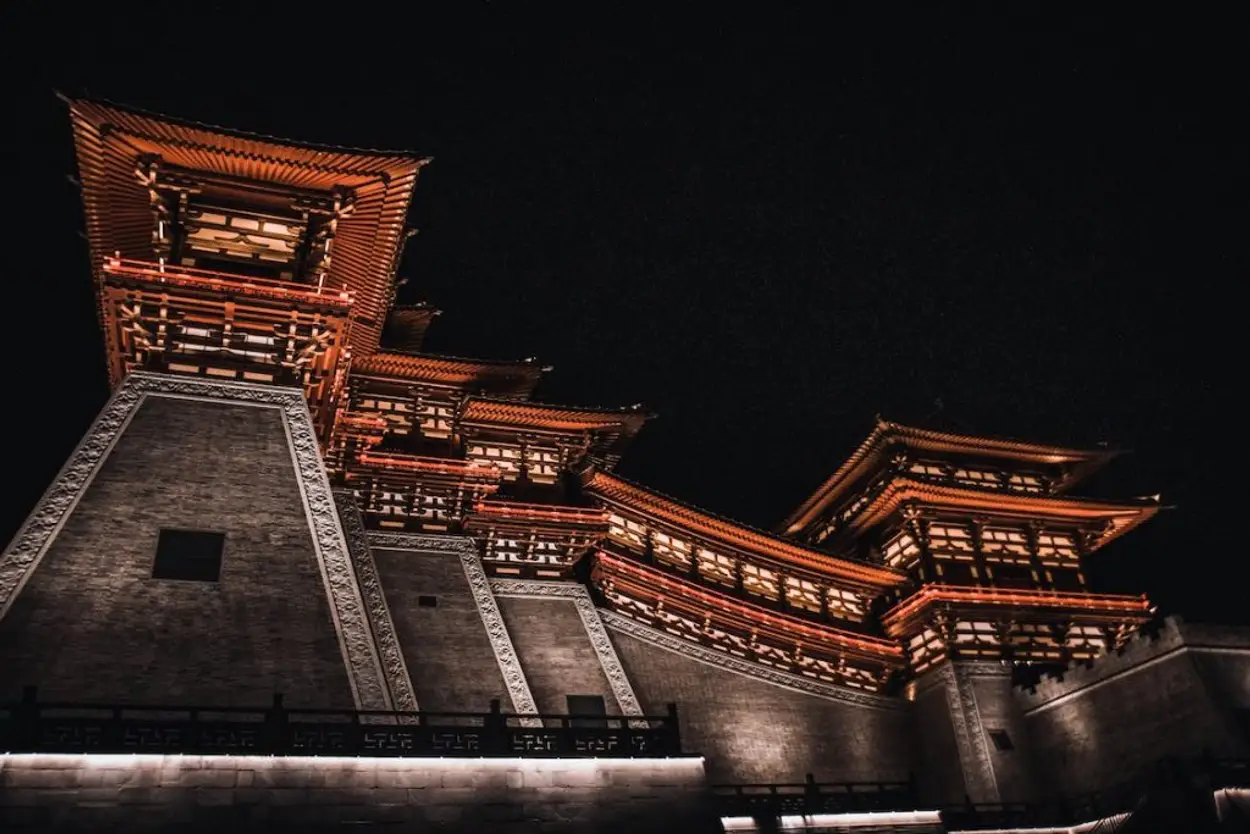
In addition, Luoyang is also one of the four great ancient capitals of China since ancient times, the cradle of Chinese civilization when this place was once the capital of 13 feudal dynasties in history. So it can be said that if you love and want to learn about ancient Chinese history and culture, Luoyang is the ideal and most suitable places to visit.
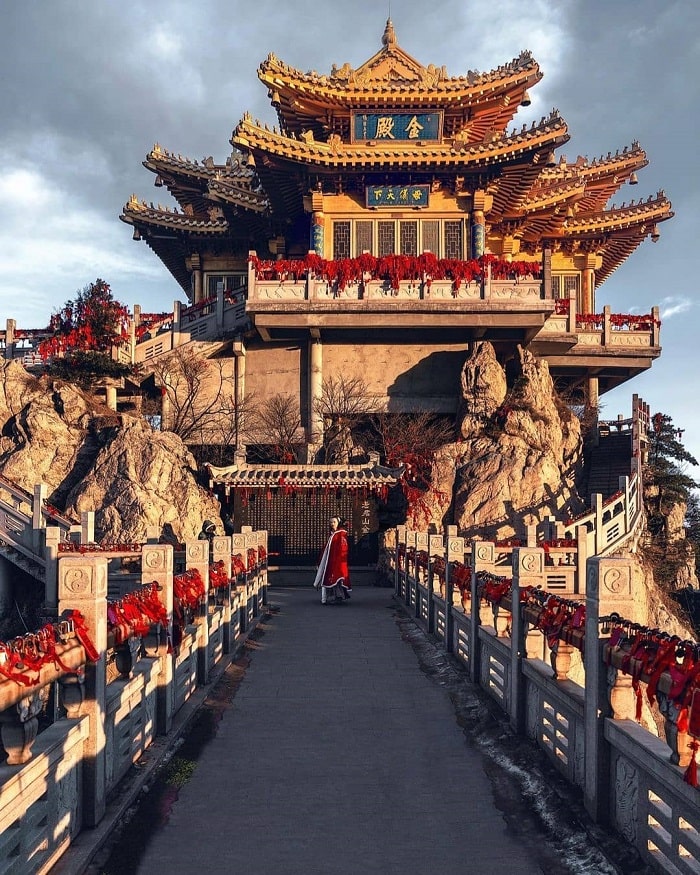
What is the best season to travel to Luoyang? (#Luoyang travel blog)
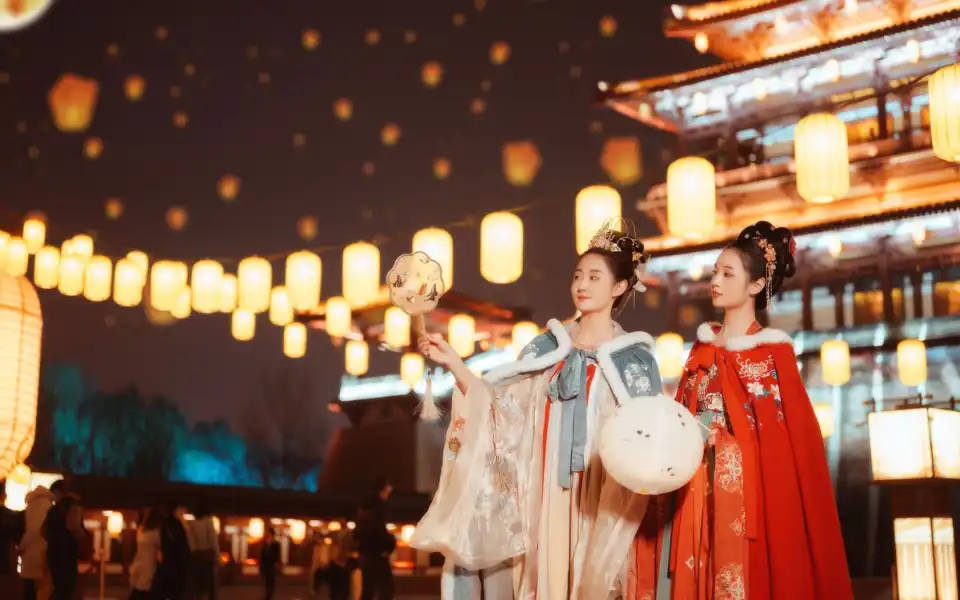
The climate of Luoyang each season has its own beauty that attracts many tourists to come here, depending on personal preferences and the purpose of the trip, you can choose the most suitable time. However, according to the experience of traveling to Luoyang, China from many tourists, the best time to visit Luoyang is in spring and autumn.
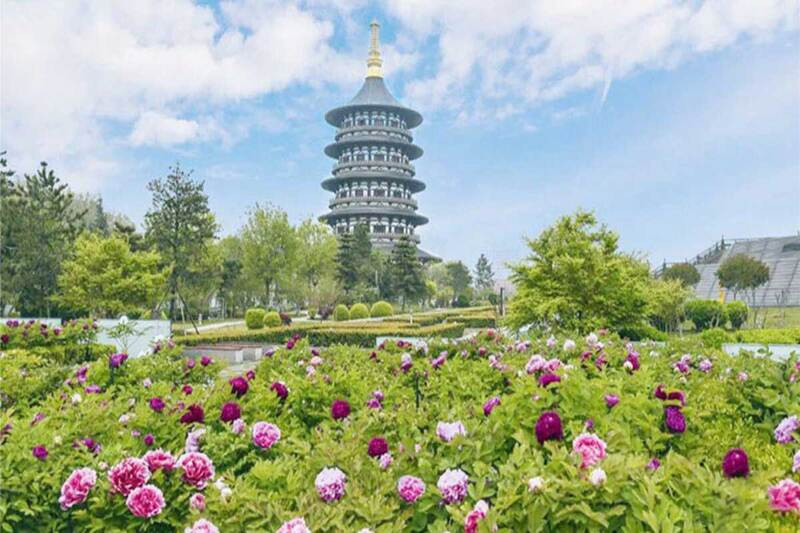
In spring, the climate of Luoyang is relatively warm and dry, the temperature is pleasant and suitable for outdoor sightseeing activities. This is also the time when the trees change color to welcome a new year, creating a beautiful and vibrant scene with the combination of cherry blossoms and many other blooming flowers.
You should go in late spring because there are often storms at the beginning of the season, spring has a pleasant, warm climate suitable for your schedule of experiences, sightseeing and outdoor activities. Moreover, this is the season of thousands of flowers blooming, cherry blossom gardens competing to bloom, creating a more poetic scene than ever. The most suitable time is April and May every year.
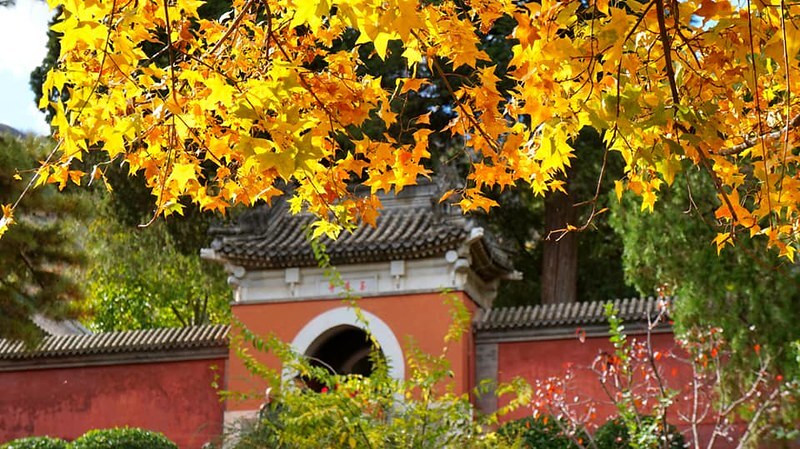
On the other hand, the autumn of Luoyang will have a cooler temperature and not too cold like winter. But at this time the landscape also changes thanks to the leaves changing color to autumn. Although there are not as many vibrant colors as spring, the autumn colors also create a romantic picture typical of the mountains and forests.
The autumn here has cooler, more pleasant weather. The leaves begin to turn into brilliant yellow and red colors, the scene appears like a vast, romantic picture in the middle of the mountains and forests. The best time to travel to Luoyang is around September, October, November every year.
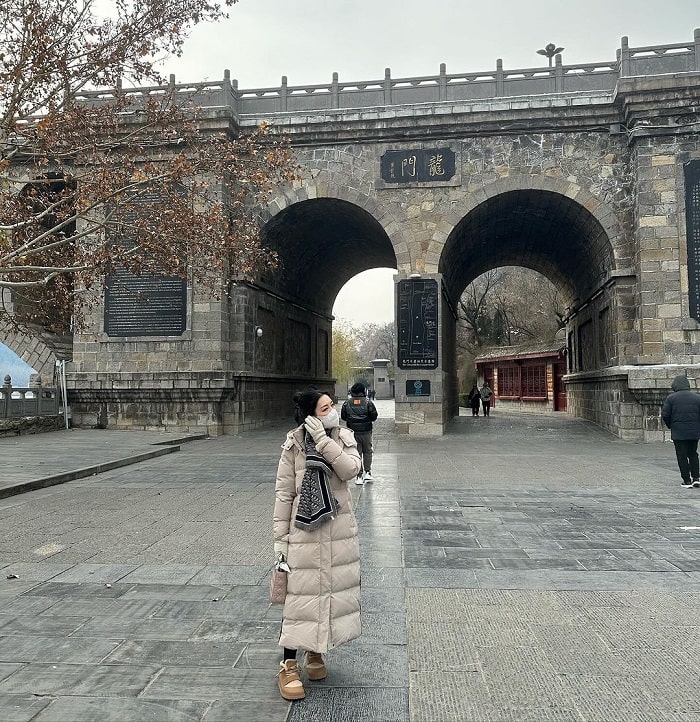
Unlike the two seasons mentioned above, whether you go in summer or winter, the weather will be relatively uncomfortable. The temperature in Luoyang in the summer will be quite hot and stuffy, easily affecting your mood and the effectiveness of the trip, while the weather in winter is relatively cold, especially the weather will sometimes be extremely bad, making it difficult for you to go outside.
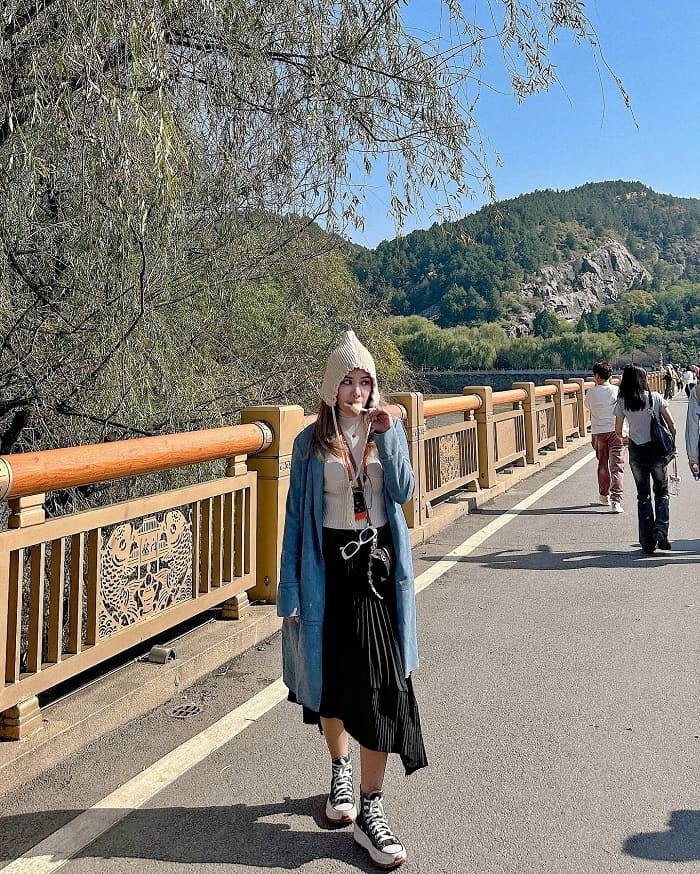
However, the above does not mean that you cannot travel to Luoyang in the summer and winter. If you cannot choose anymore, you can still start your journey at this time, but remember to prepare some additional safety items to ensure a smoother trip.
How to get to Luoyang?
Plane (#Luoyang travel guide)
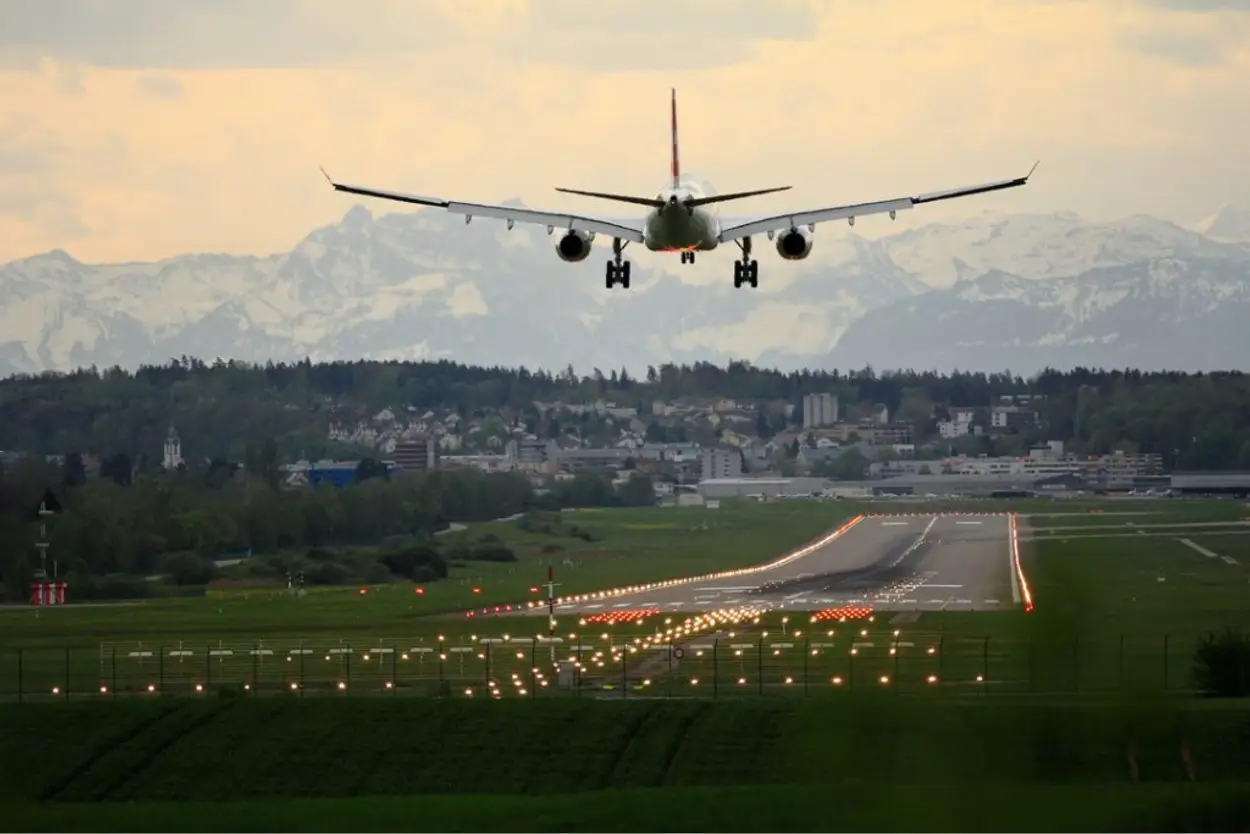
Located about 10km north of the city centre, Luoyang Beijiao Airport (LYA) is one of the most important air transport bases in Henan Province. It operates flights to several popular domestic cities such as Beijing, Shanghai, Hangzhou and Kunming, as well as international cities such as Hong Kong and Bangkok.
The airport offers convenient services and facilities. VIP lounges can be found at both the International Terminal and the Domestic Terminal.
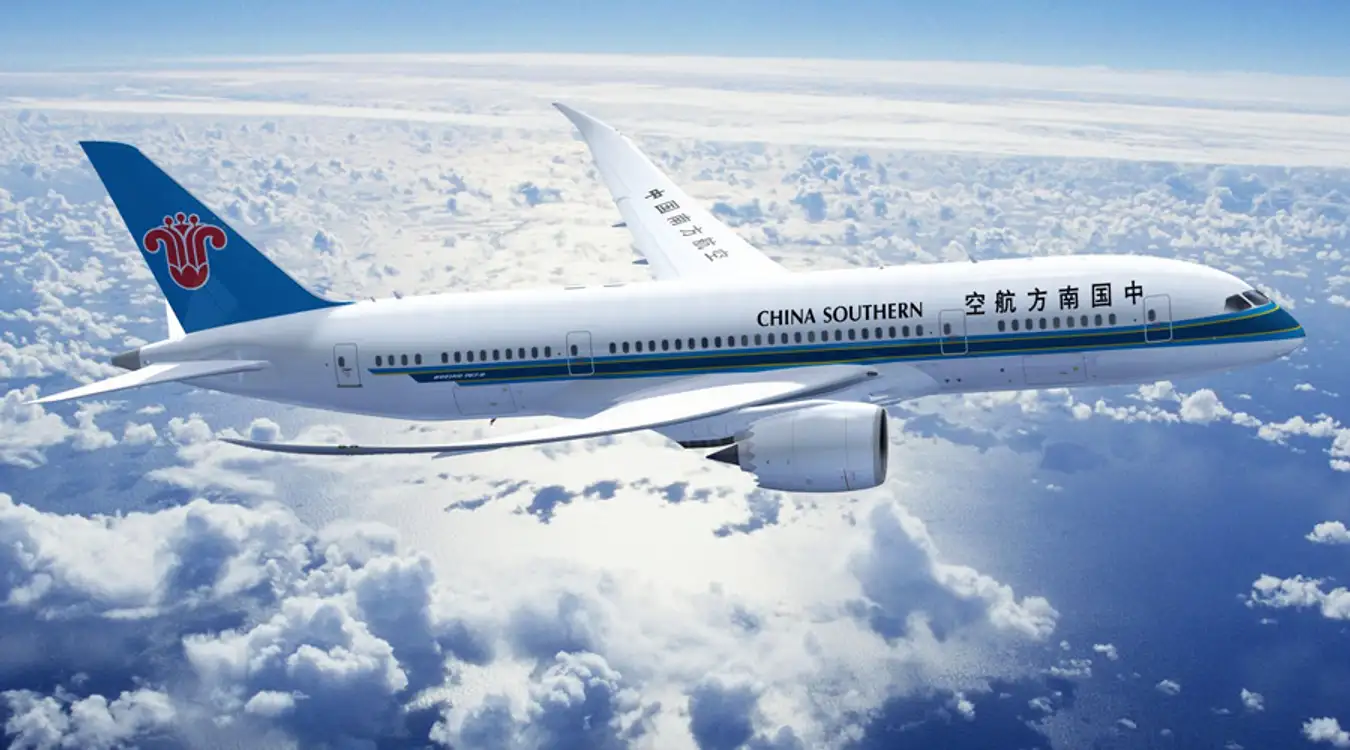
Currently, there are 17 airlines connecting 24 cities in China such as Beijing (2 hours), Shanghai (2-2.5 hours), Guangzhou (2.5 hours), Chengdu (2 hours), Hangzhou (2 hours), Chongqing (1.5 hours) and Kunming (2.5 hours).
How to get Luoyang from Vietnam?
Airplanes are still the most popular and convenient way to travel from Vietnam to Luoyang. The city has Beijiao International Airport, which is considered one of the busiest airports in China.
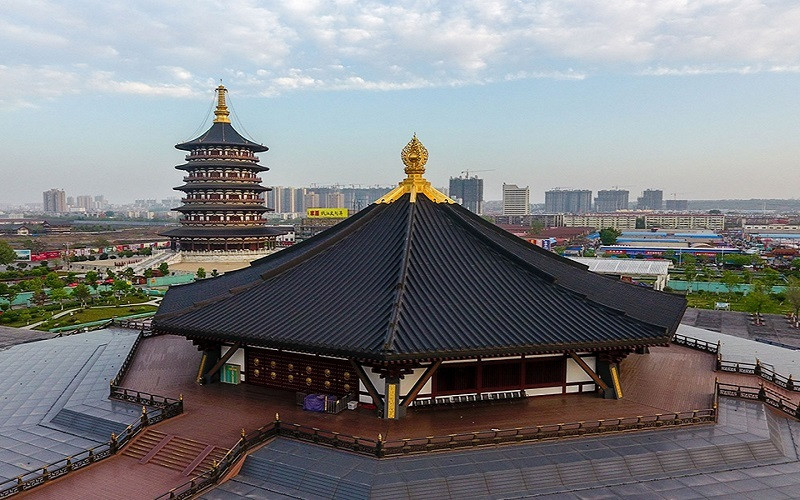
In Vietnam, international airports in the three major cities of Ho Chi Minh City, Hanoi and Da Nang all have flights to Luoyang. You can refer to the airfare range from international airports to Luoyang as follows:
- Airfare from Saigon to Luoyang: ticket prices range from 5,000,000 VND to 14,000,000 VND
- Airfare from Hanoi to Luoyang: ticket prices range from 4,000,000 VND to 15,000,000 VND
- Airfare from Da Nang to Luoyang: ticket prices range from 6,500,000 VND to 10,000,000 VND
Most flights need to stop at 1-2 stations and direct flights from Vietnam to Luoyang are rare. Transit locations are usually Hanoi for flights from Ho Chi Minh City and Da Nang, along with a city in China such as Shenzhen or Kunming.
Train
Luoyang Railway Station, like a regular railway station, provides Z/K/T trains between most inland cities such as Beijing, Xi’an, Shanghai, Guangzhou, Chengdu, Hangzhou and Chongqing.
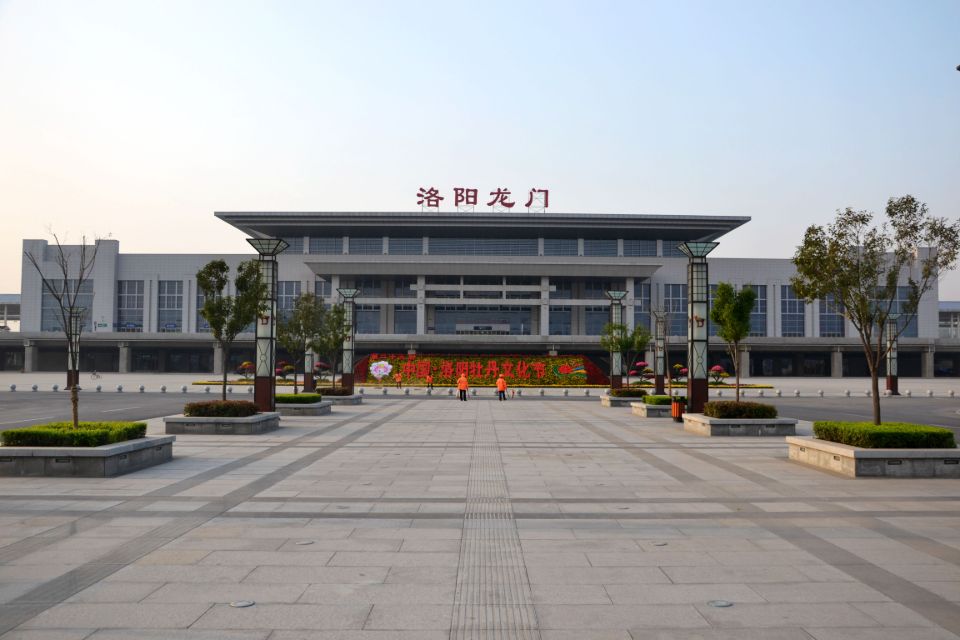
Luoyang Longmen Railway Station, located 11km south of Luoyang city, serves as a high-speed train station. It is a better choice for travelers coming from Beijing (4 hours), Xi’an (2.5 hours), Wuhan (3 hours) and Zhengzhou (40 minutes).
There are 5 railway stations in Luoyang, namely Luoyang Railway Station, Luoyang Longmen Railway Station, Guanlin Railway Station, Yanshi Railway Station and Xin’anxian Railway Station. Among them, Luoyang Longmen Railway Station and Luoyang Railway Station are the main passenger railway stations.
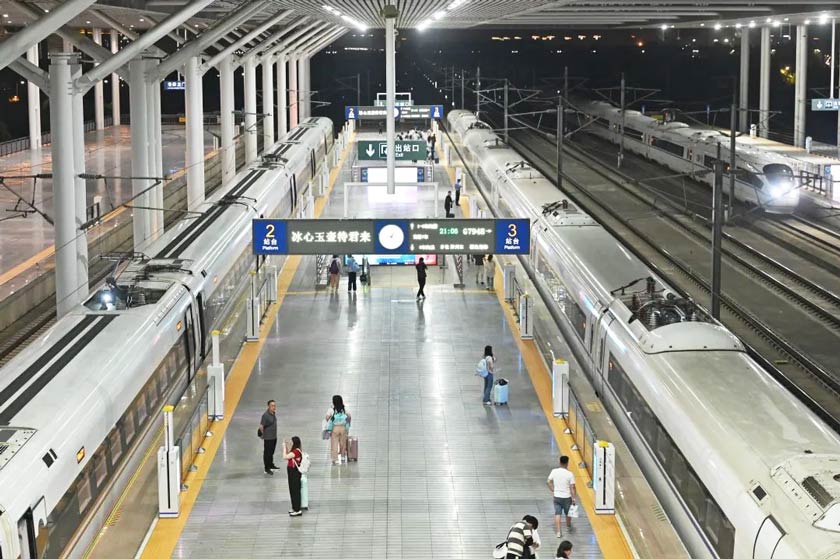
Getting Around Luoyang
For independent travelers, the most popular way to get around Luoyang is by taxi or bus. The Luoyang Metro is still under construction.
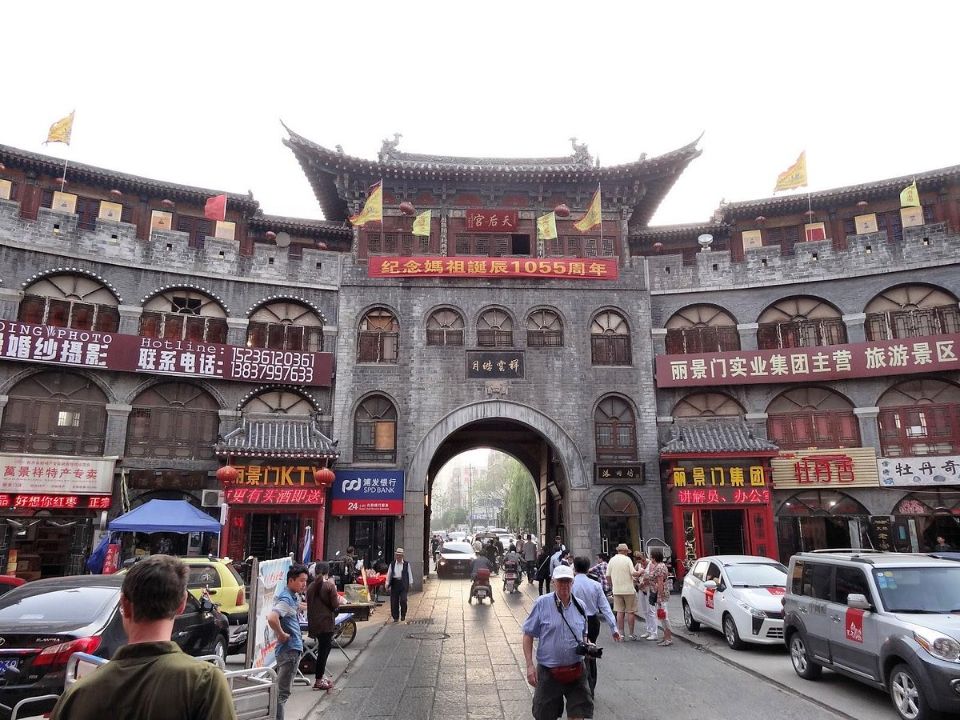
- By subway: Luoyang Metro Line 1 runs through Luoyang from east to west and connects many attractions such as Wangcheng Park, Tianzi Jialiu Museum, and Lijing Gate.
- By taxi: Taking a taxi to tour around Taiyuan City can save you a lot of time. Generally, the fare is 5 CNY for the first 3km, then 1.5 CNY for each additional km. The taxi fare will be slightly higher at night.
- By bus: There are more than 120 bus routes in Luoyang with more than 3,000 buses, including major stops such as Longmen Cave, the airport, and the train station. Buses usually charge 1-3 CNY.
Where to stay in Luoyang?
Luoyang City has a vibrant tourism industry, there will be many motels and hotels from budget to luxury serving tourists coming here all year round. Depending on your financial ability, you can book a room in advance at Agoda, Booking before your trip.
Don’t forget to check hotel room prices in Luoyang in advance to book cheap rooms that suit your needs and pay directly on the app at a more preferential price.
Below we recommend more best budget, mid-range and upscale hotels with good ratings and reviews you can refer to.
- Courtyard by Marriott Luoyang (Agoda, Booking)
- Holiday Inn Express Luoyang City Center, an IHG hotel (Agoda, Booking)
- Hayatt Place Luoyang
- GeMei Hotel Luoyang Longmen High-speed Railway Station
- Courtyard by Marriott Luoyang (Agoda, Booking)
- New Friendship Hotel (Agoda, Booking)
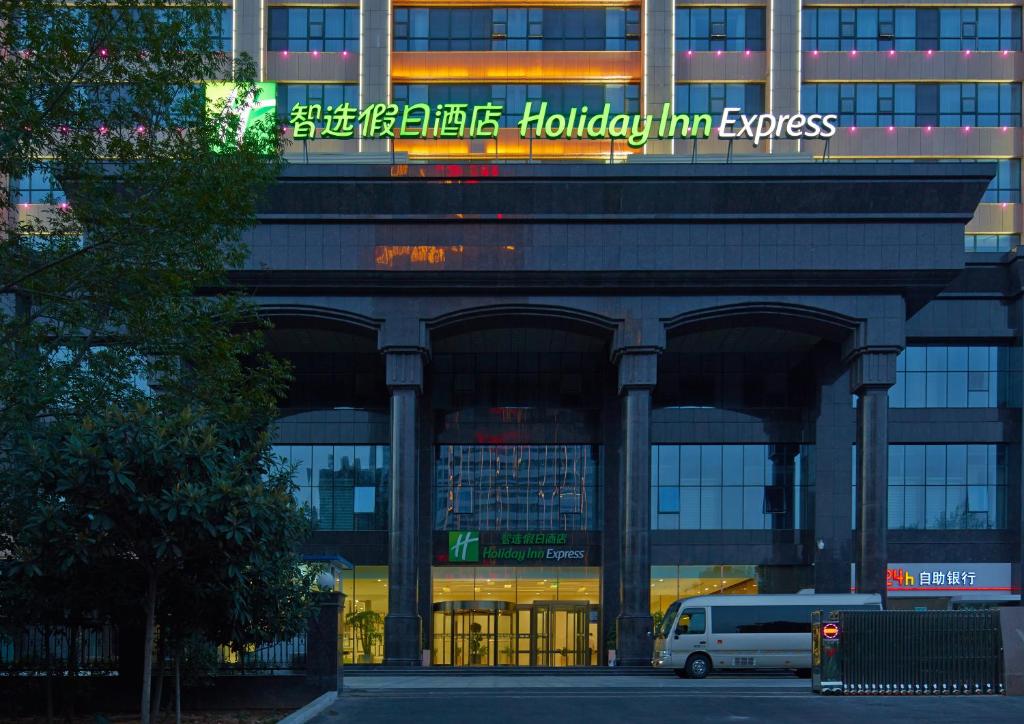
Check out more top and best hotels in Luoyang on Agoda, Booking.
What to do and where to go in Luoyang?
Longmen Stone Caves (Longmen Grottoes)
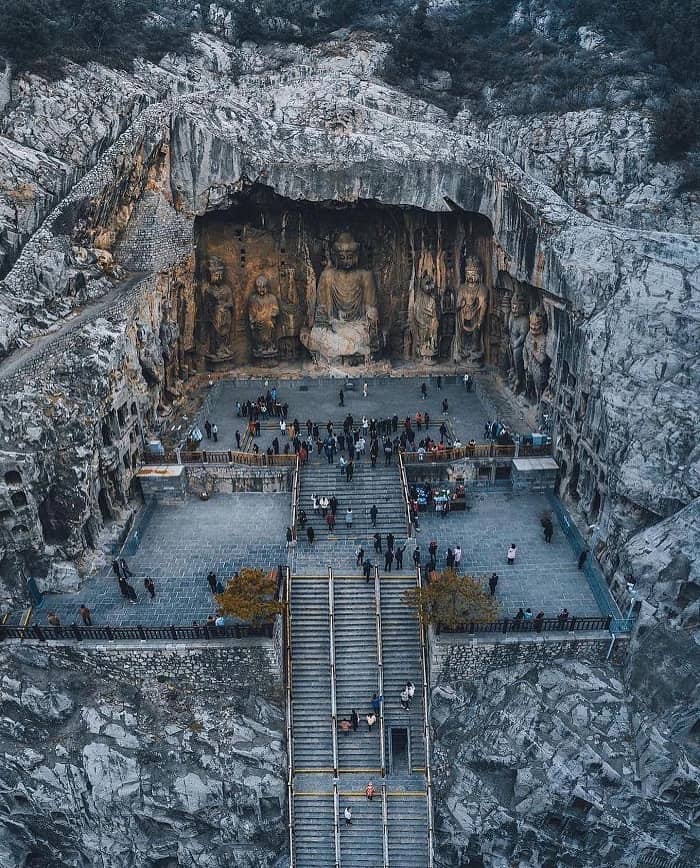
Located about 12km south of Luoyang city center, Longmen Grottoes is a complex of giant sculptures carved into the cliffs. This is also one of the three most famous ancient sculpture sites in China, along with Mogao Grottoes and Yungang Grottoes. In 2000, Longmen Grottoes was recognized by UNESCO as a World Cultural Heritage.
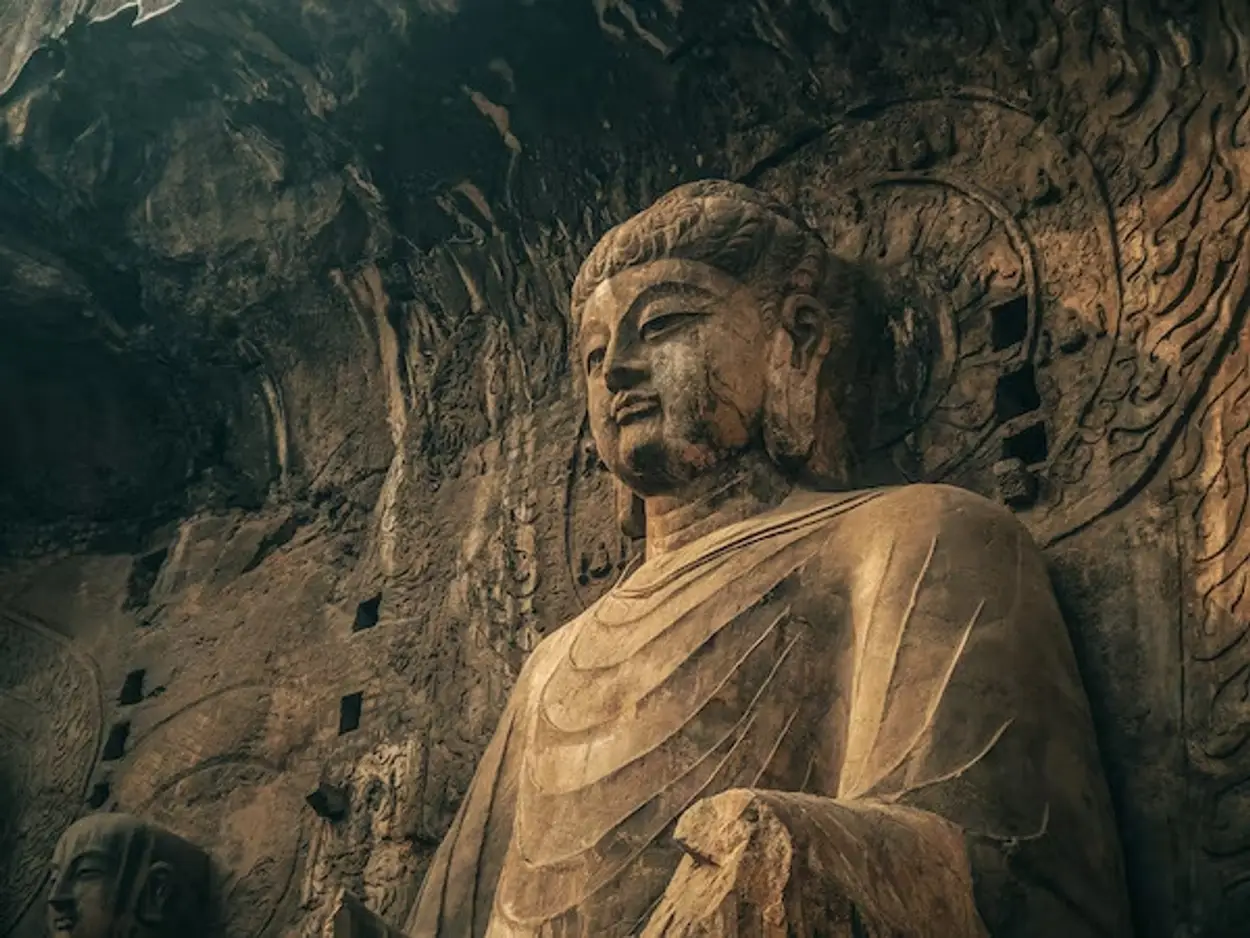
This is a work of carving on the cliff, the Buddha statues are carved on the wall running around the bank of the river Y (a branch of the Yellow River), about 2km long. More than 100,000 Buddha statues are carved here. This is where historical documents about culture, art, calligraphy, … of China from ancient times to the present are preserved.
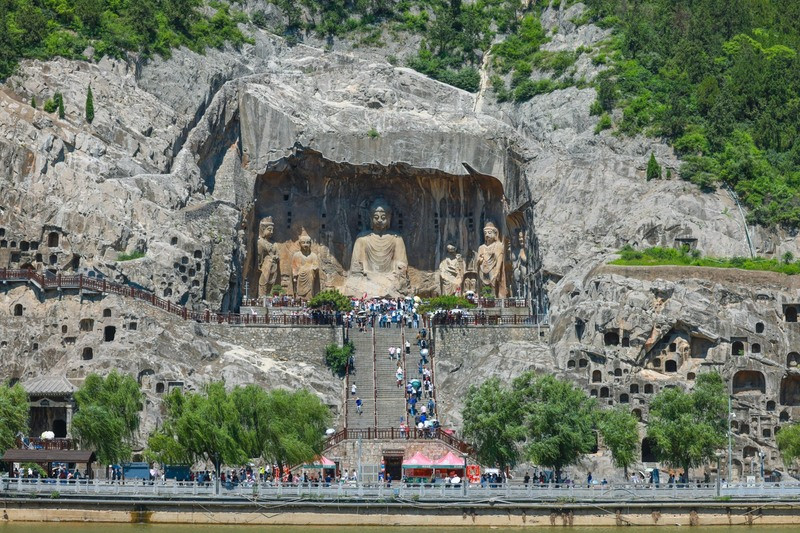
The total length of the cave is about 1km, including about 2345 large and small caves along with 100,000 different sculptures. Among them is a Buddha statue that is up to 17m tall. Currently, Longmen Grottoes is still considered the largest and most outstanding cave and Buddha tower art form from the end of the Northern Wei Dynasty to the Tang Dynasty. At the same time, this is also a work representing the entire Chinese stone carving art.
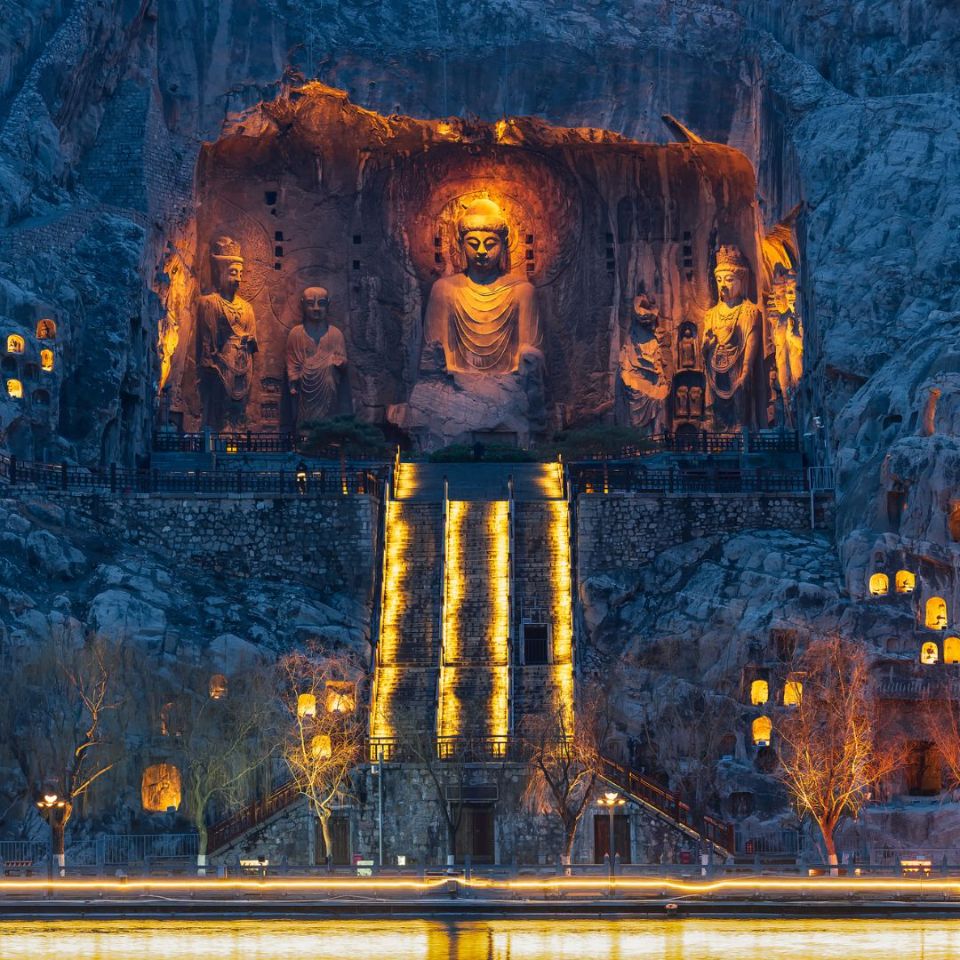
It can be said that this is the most typical place to visit when traveling to Luoyang, China. Not only does it have many architectural and historical values, but it also has a strong ancient Chinese style.
Linzi Temple
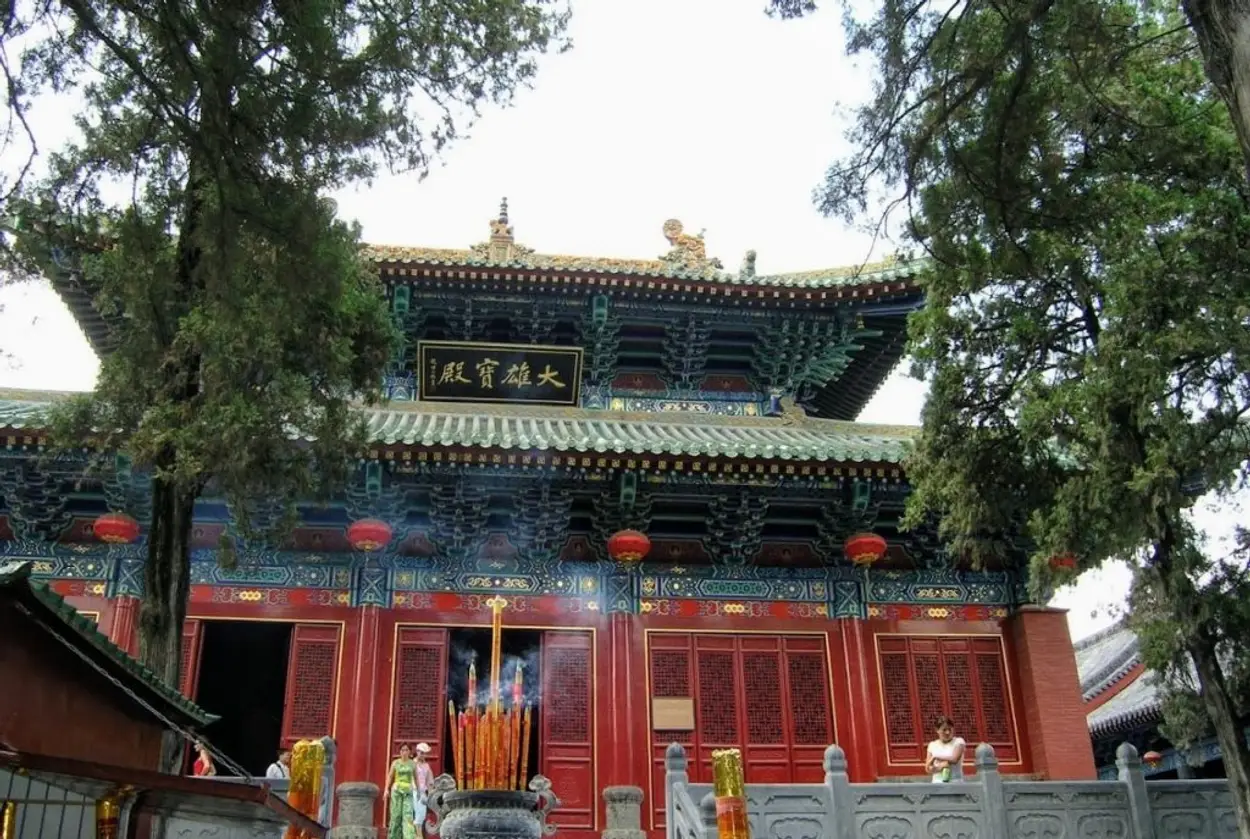
Built in 495 during the Northern Wei Dynasty, Lin Tu Temple is up to 1500 years old. This is also one of the oldest temples in China. Known more widely through the movie “Shaolin Temple”, the temple has become a closer image to many generations of tourists from all over the world, not just China.
Linzi Temple is also the origin of many different martial arts, typically Luohanquan. When you come here, you can directly see the monks performing powerful, internal force staff moves.
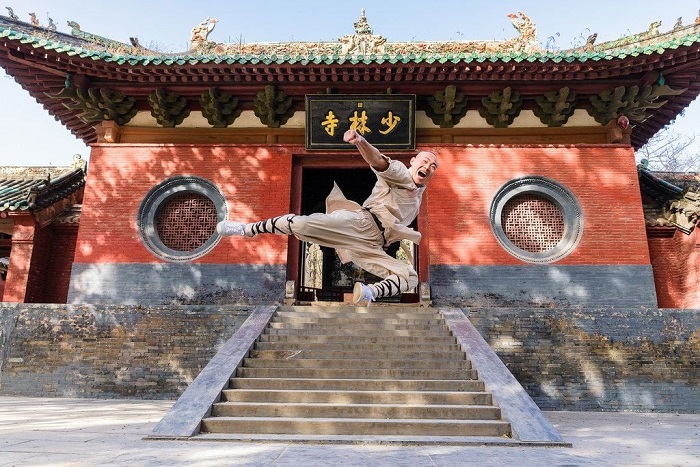
This is also the birthplace of the world-famous Shaolin Temple Kung Fu. At the same time, Linzi Temple is also the origin of a number of other martial arts in China such as Luohanquan, Changquan, etc. When visiting Shaolin Temple, visitors will see monks performing martial arts with famous internal force staff and qigong exercises.
Linzi Temple was also recognized as an important National Buddhist Monastery of China in 1983. It was later recognized by UNESCO as a world cultural heritage in the historical complex in Dengfeng.
Baima Temple (White Horse Temple)
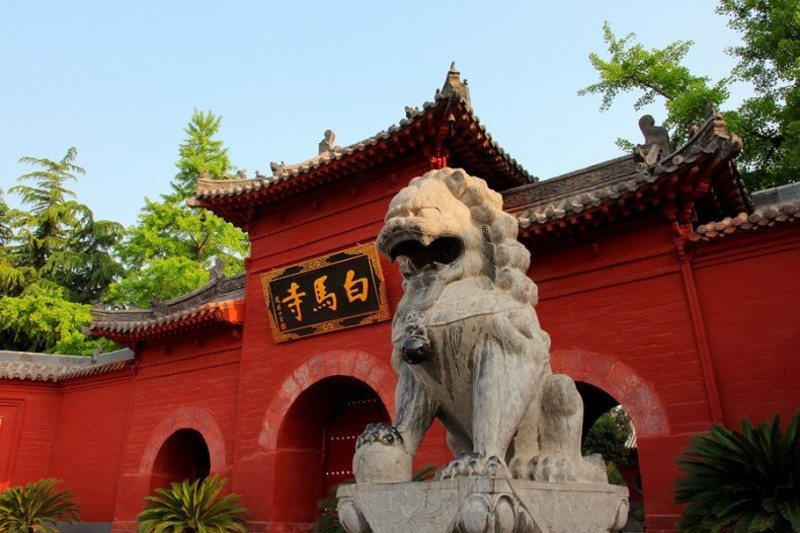
The first ancestral temple of Chinese Buddhism, Baima Temple is where 3 important marks of the history of Buddhism originating from China are stored. Built in 68 by Emperor Ming of Han, Baima Temple is associated with many famous legends and stories about its establishment and construction.
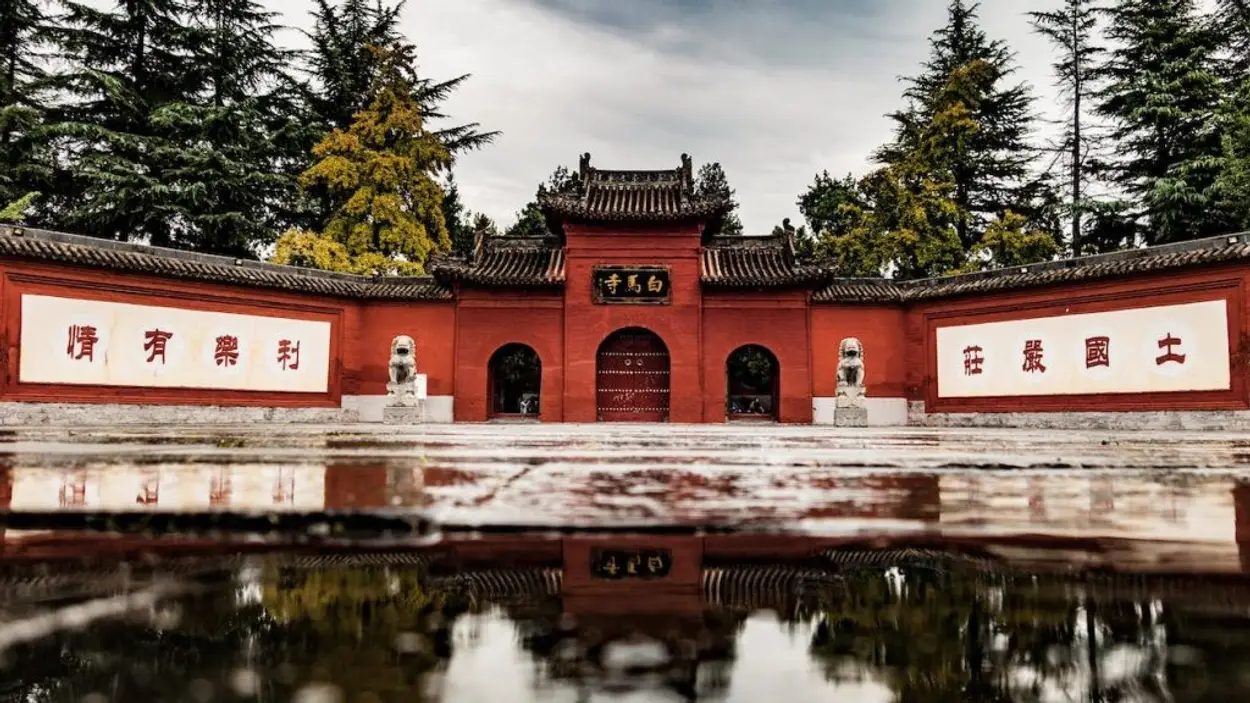
The total area of Baima Temple is 47,840 square meters, with more than 100 halls to worship Buddhas and Arhat statues from the Yuan Dynasty. The entire temple is surrounded by a large garden with a pure green color, with a stone-paved path under the trees leading to the temple gate.
If you are a Buddhist, do not forget to visit Baima Temple to worship and learn more about the origins of Buddhism at this ancient temple.
Luoyang Ancient Tombs Museum (#Luoyang travel blog)
Luoyang Ancient Tombs Museum is a “unique” museum in China. According to many researchers, Luoyang is geographically located as the land of emperors, mandarins and many famous scholars chosen as their resting place. Among them are famous tombs such as Dufu poetry, Guan Yu general, Lü Buwei, …
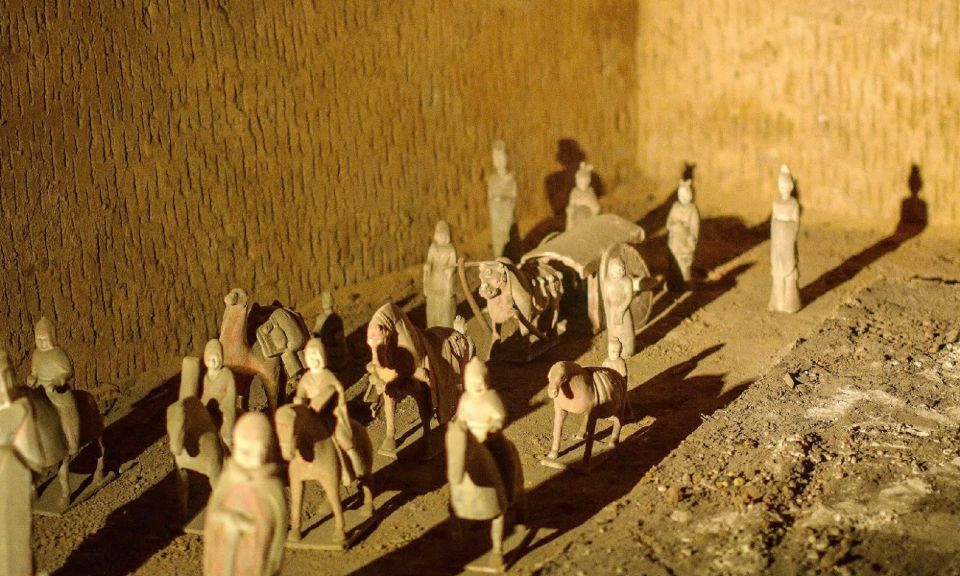
The exhibition area in the ancient tomb is located underground, so it will be a bit gloomy and cold. Visitors can also listen to presentations about burial customs, rituals and burial forms in ancient historical periods. In particular, the Ancient Tomb Museum does not charge an entrance fee, but visitors can rent an automatic guide for 20 NDT (about 67,000 VND) to learn more about this museum.
Lijing Gate – walking street and cuisine
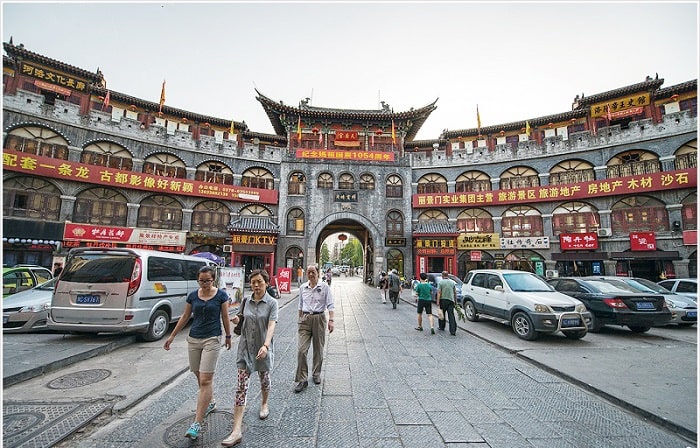
Located right in the center of Luoyang, this is the western gate of the city with many vestiges of the ancient Luoyang city. Passing through this gate, you will be on a walking street and a food street with a variety of ingredients. Coming here, visitors will be able to try Shui Xi (Water Banquet), a set of dishes including 8 cold and 16 warm dishes cooked in various broths with a history of more than 1000 years, cooked in a thick sauce, mixed with many flavors that stimulate all the senses of the user.
Mingtang and Tiantang Scenic Area
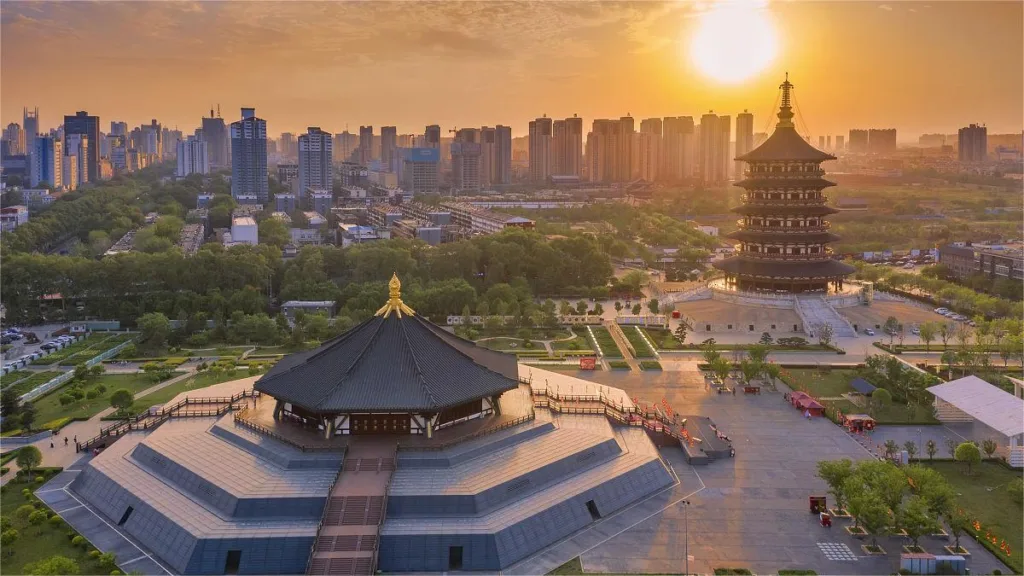
Around the 16th century, the The Mingtang and Tiantang complex was built under the reign of Emperor Wu Zetian, established the capital in Luoyang and changed its name to the capital Shendu (divine capital). In which, Mingtang was the place to perform royal ceremonies such as the ceremony of thanking heaven and earth, the emperor received envoys. Tiantang was the tallest tower at that time used to worship Buddha.
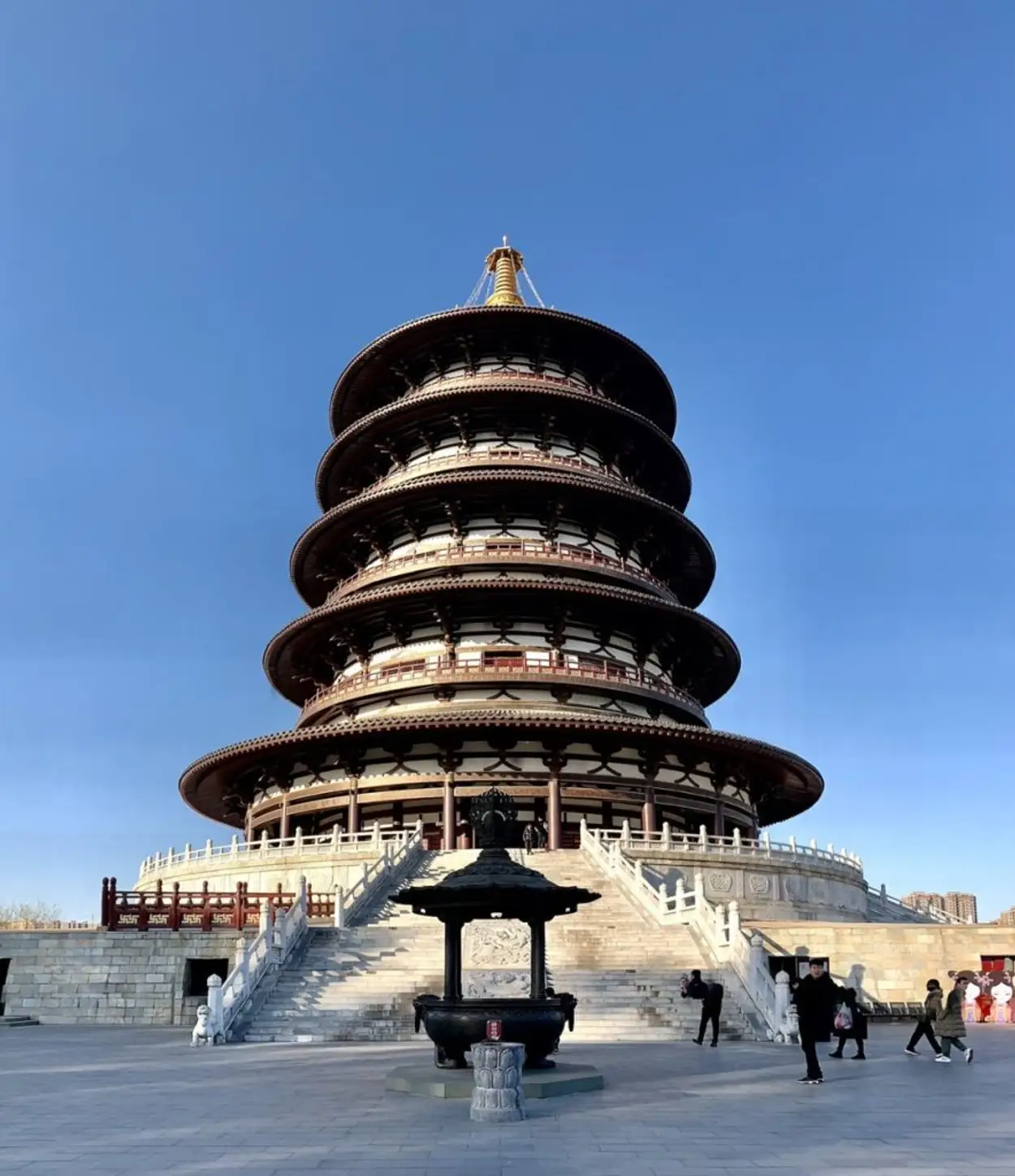
After many years of history, Mingtang and Tiantang has been rebuilt. However, it is still built according to the architecture, style or shape of the old Mingtang and Tiantang.
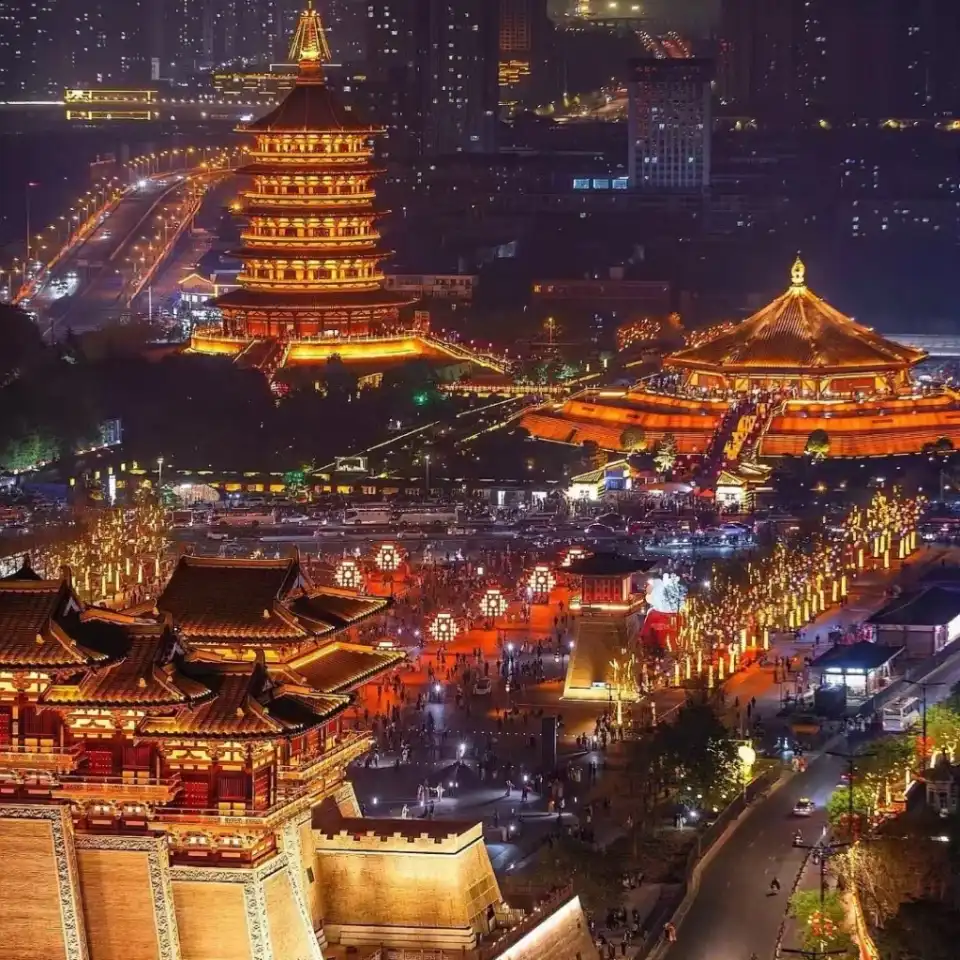
After a long period of war and destruction, the relic site could not be kept in its original state, until 1986, some archaeologists discovered a site about 1300 years old. Mingtang and Tiantang were rebuilt as museums of ancient architecture, history and culture.
Laojun Mountain – the peak of the heart of Taoism
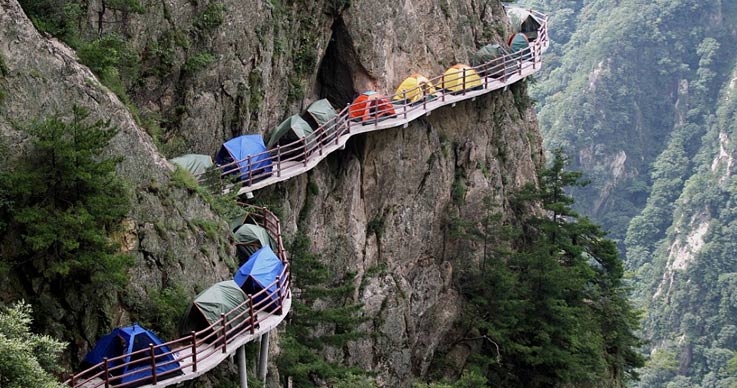
Laojun Mountain is located in Luanchuan district, Luoyang city. This is the main peak of the 800-mile Funiu Mountains and is the holy land of Taoism. It is known as “the world’s first sacred land and the world’s first immortal mountain”.
Laojun Mountain has more than 2,000 years of human history and is one of the oldest mountains in Taoism. According to legend, Li Er, the founder of Taoism in the Spring and Autumn Period, once retreated here to practice, making it the “origin of Taoism”.
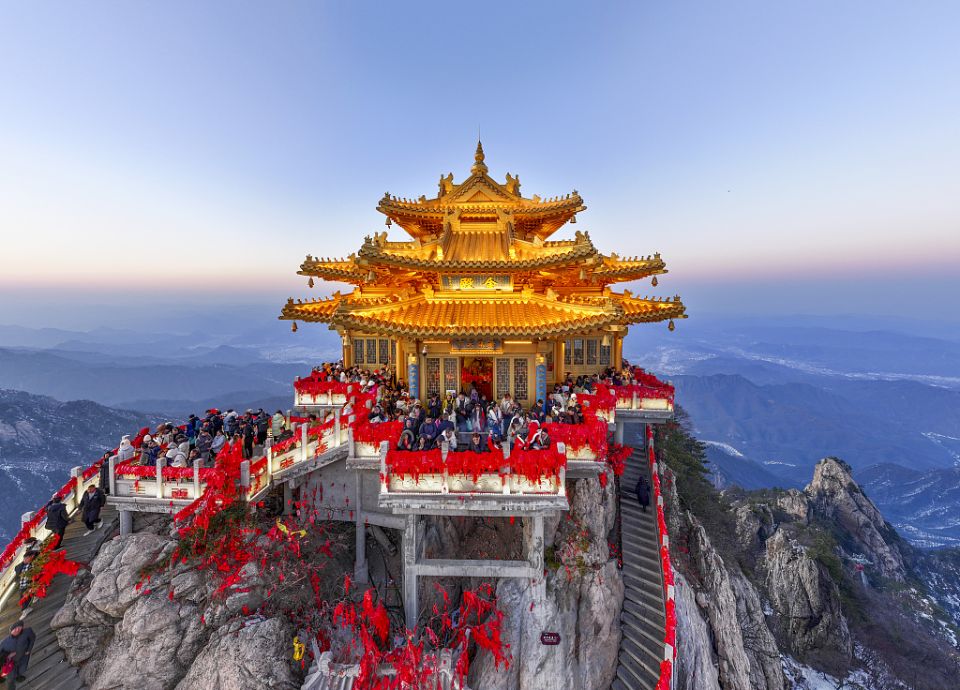
Laojun Mountain has 6 scenic areas, including many famous scenic spots such as Taiqing Palace, Shifangyuan, Lingguan Palace, Guanyin Palace, Sanqing Palace, Laojun Temple, Shili Gallery, etc. This is an ideal place for tourists to sightsee and admire the beauty of this land.
In spring, the mountain flowers are in full bloom, the rhododendron forest is colorful; in summer, the green shade blocks the sun, is an ideal place to escape the heat; in autumn, the mountains and forests are covered with red leaves; dyed, very beautiful; in winter, you can enjoy the beautiful scenery of the sea of clouds and snow and experience the joy of skiing. Climb to the top of the mountain to look out at the surrounding scenery, the sea of clouds is rolling, as if you are lost in a fairyland, so refreshing and refreshing.
Longtan Grand Canyon – Explore the geological wonders
Longtan Grand Canyon is located about 70km southwest of Luoyang City. The gorge is deep, the stream flows, and the scenery is picturesque. Visitors can experience canoeing, mountain climbing and other outdoor sports here and feel the magical charm of nature.
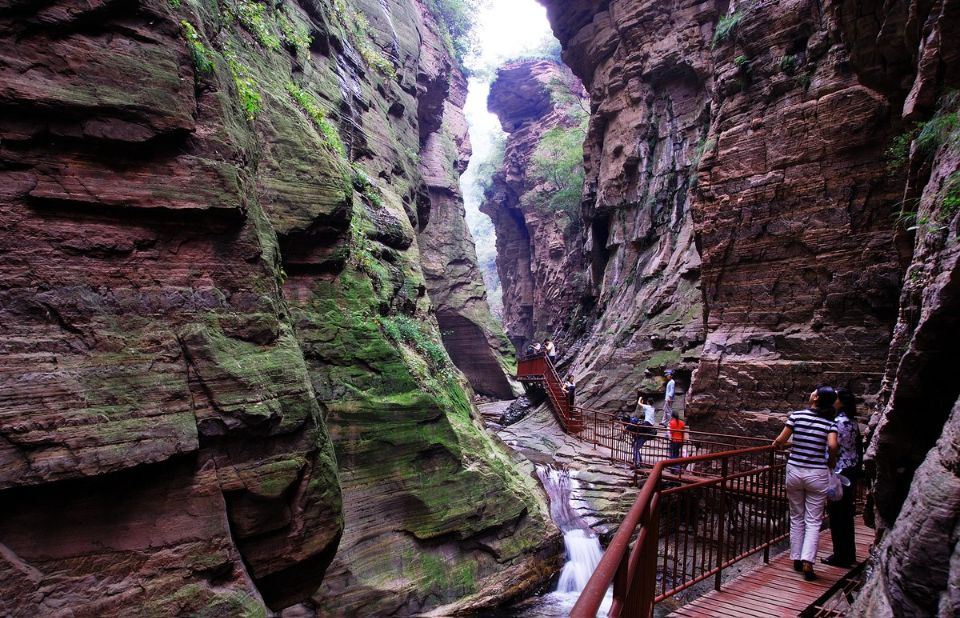
Walking along the Canyon, you can see the sharp cliffs on both sides and the towering peaks. The stream meanders in the gorge, crystal clear. Visitors can take a cruise ship between the gorges and admire the peaks, strange rocks on both sides of the river and the crystal clear water. At the same time, you can also choose to hike and challenge your limits. Here, whether you are close to nature or looking for excitement, you can find your own fun.
Wangcheng Park – The Largest Park in the City Center
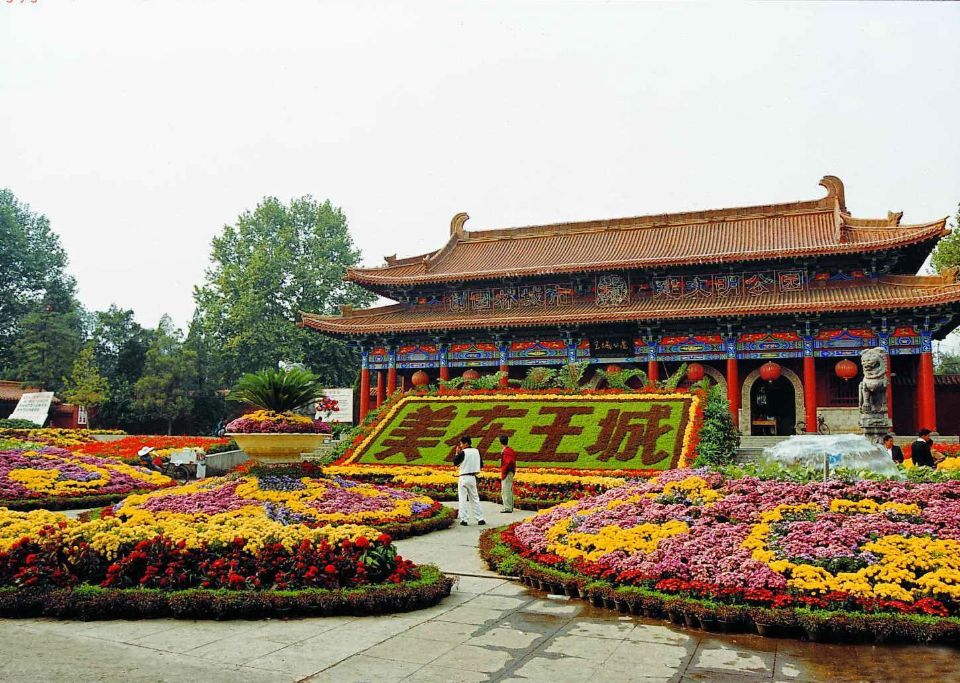
Wangcheng Park is the largest park located in the city center, which combines history, garden landscape, zoological landscape and entertainment.
As a famous heritage park, there are many ancient buildings where you can admire the Zhou Dynasty, such as Chenxiang Pavilion and Shaoyue Platform. There is a zoo with more than 100 species of wild animals in the west of Wangcheng Park. You can see Giant Panda, South China Tiger, Siberian Tiger, Leopard, Black Bear, Brown Bear, Red-crowned Crane, etc.
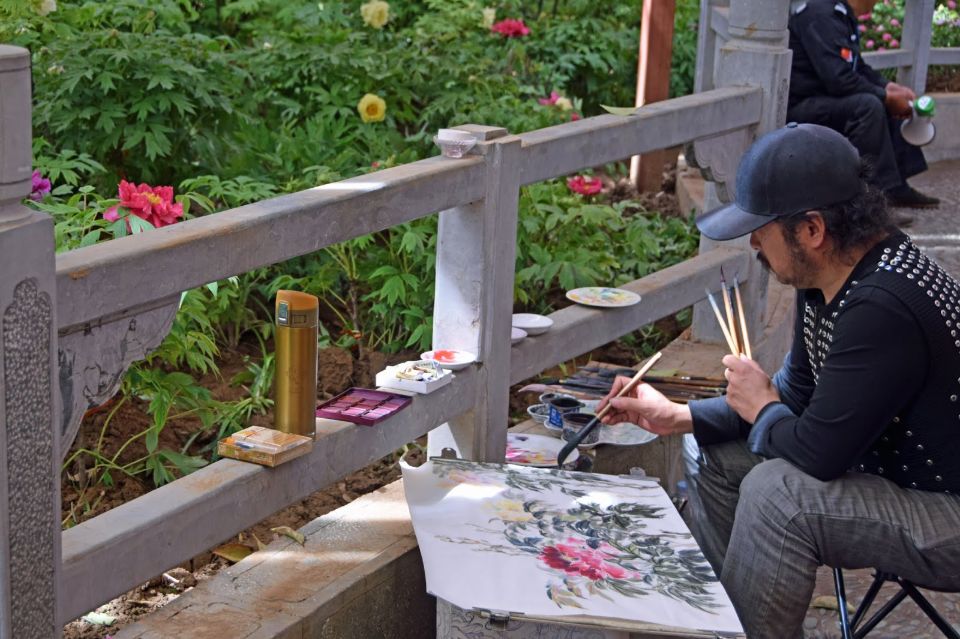
In addition, Wangcheng Park is the main venue of the Luoyang Peony Festival held from early April to early May every year. During the festival, hundreds of thousands of peonies bloom together in a majestic display of natural beauty. Besides, the park is equipped with recreational facilities. You can see many local people enjoying there.
Luoyang National Peony Garden – A Great Place to See Peonies
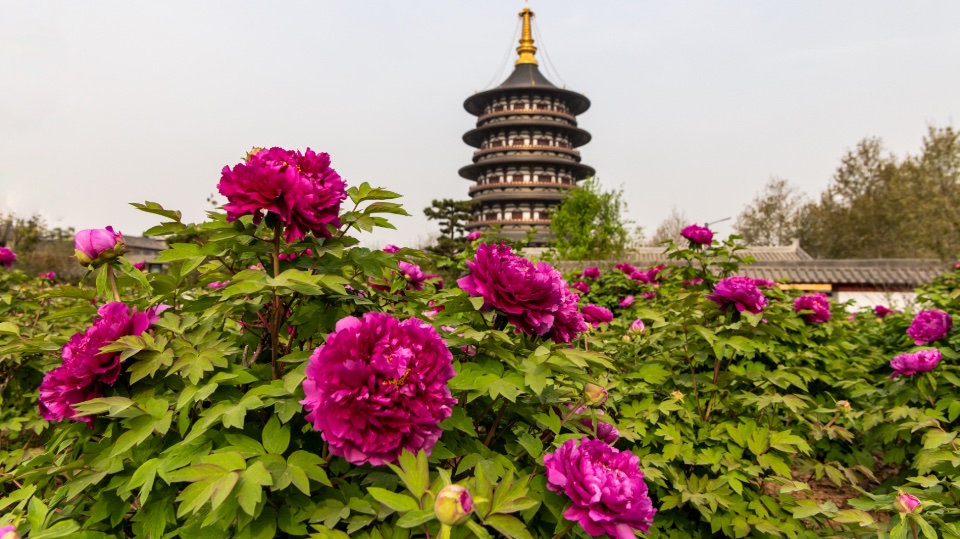
Luoyang National Peony Garden is also one of the most important places to enjoy peonies during the Peony Culture Festival. It is located on the ruins of Luonan Sui and Tang Ancient City, starting from Luoyang Bridge in the east, Peony Bridge in the west, Luoyi Road in the south, and the southern embankment of Luopu Park in the north. With a total planning area of 2,500 meters from east to west, it is currently the largest ornamental peony garden in China.
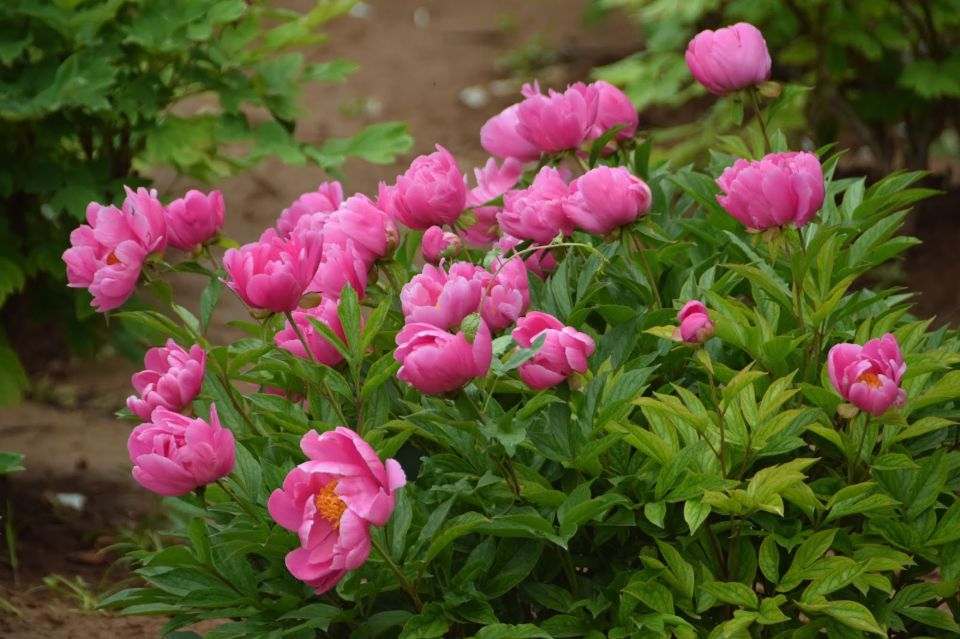
Luoyang National Peony Garden is divided into six scenic areas from west to east, namely the West Gate Scenic Area, Peony Cultural Area, Peony Historical and Cultural Area, Embankment Tourist Area, East Gate Scenic Area, and Production Management Area. Among them, more than 500,000 peonies of more than 1,000 varieties are planted, including nine major color systems of peonies, and more than 2 million plants of more than 100 varieties of trees, shrubs and various plants are planted. During the festival, you can also watch wonderful performances performed by actors dressed in traditional Chinese costumes.
Xiaolangdi Scenic Area – The Wonders of Luoyang
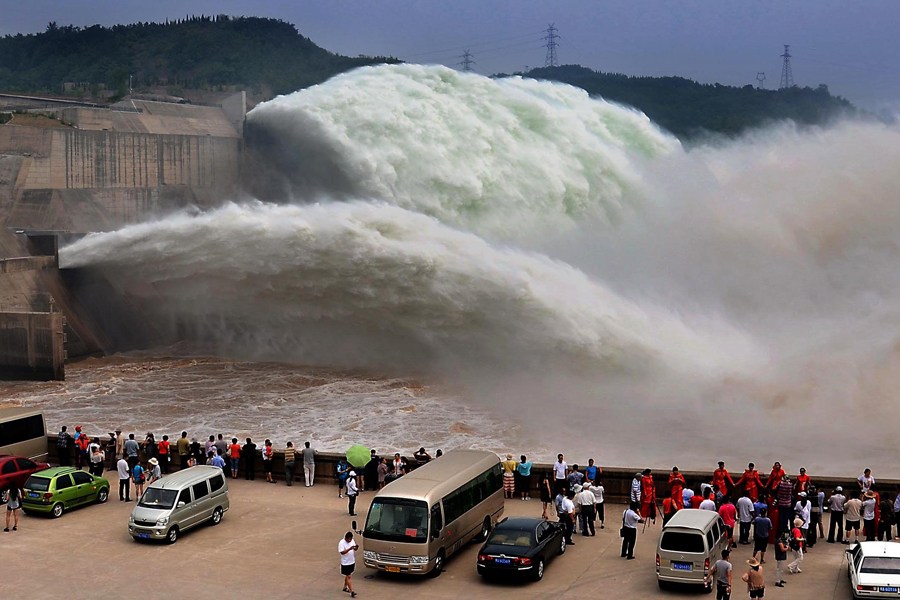
Xiaolangdi Dam is an important dam that blocks the Yellow River. It becomes most attractive when the dam begins to discharge floodwaters in the rainy season. When the dam is put into operation, visitors will surely be amazed by the powerful silt-filled water flow. It fully demonstrates the power of nature.
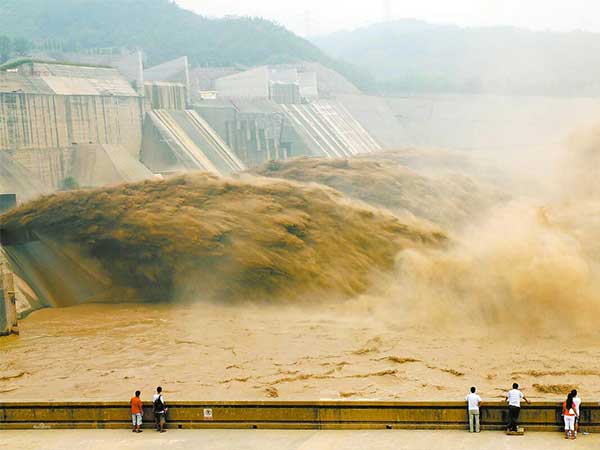
The surrounding scenery of Xiaolangdi is also very beautiful, and a scenic area has been built to enjoy the natural beauty. The floodwaters of the Yellow River here form a large lake with many peninsulas, islands and isolated peaks, and tourists praise it as “Little Thousand Island Lake”. The entire scenic area stretches from the north and south banks of the river. From the south bank, you can see the entire dam. On the north bank, you can see Mount Taihang and Mount Wangwu, which are large ecological gardens.
Guanlin Temple – Mausoleum of General Guan
Guanlin Temple was built to honor Guan Yu, a famous general of the Shu Kingdom during the Three Kingdoms period. This is where Guan Yu’s head is buried. General Guan Yu is one of the few people in Chinese history who is revered by Confucianism, Buddhism, and Taoism. People regard him as a legendary and noble hero, worshiping him as a deity. If you are interested in the history of the Three Kingdoms or want to admire traditional Chinese architectural styles, Guanlin Temple is the ideal place for you to explore.
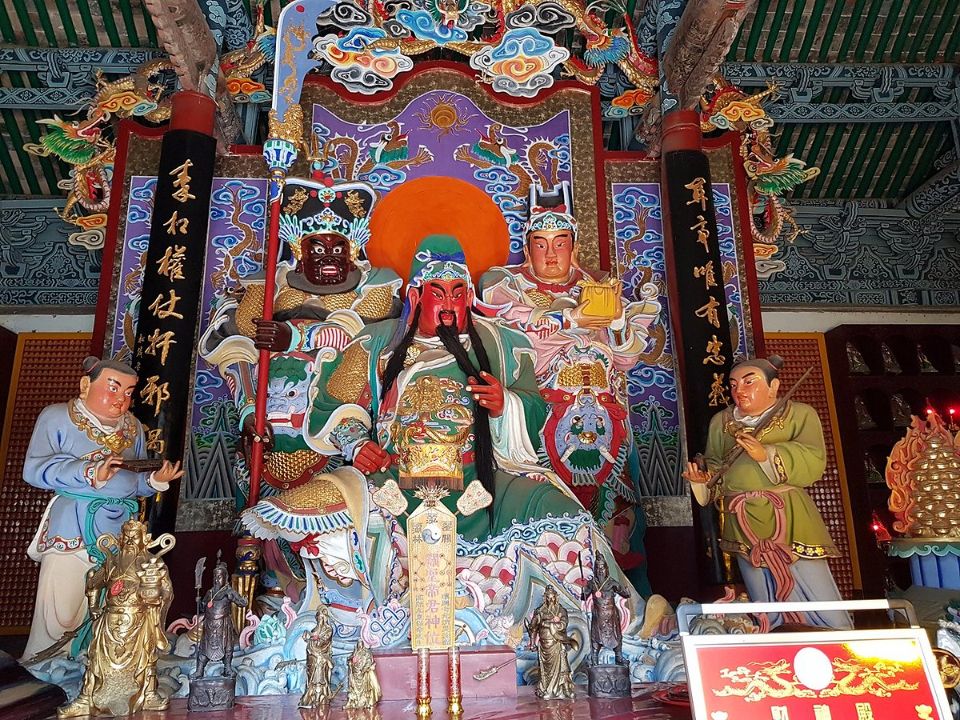
Highlights of the Longmen Grottoes include the Vairocana Buddha Statue in Fengxian Temple, Bingyang Cave – the first royal cave, Wanfo Cave containing 15,000 small seated Buddha statues, and Guyang Cave – the oldest cave with the richest contents. The entire grotto can be divided into the West Hill and the East Hill, but the most worth-seeing caves are in the West Hill. The recommended tour route is West Hill Cave – East Hill Cave – Xiangshan Temple – Baiyuan Garden. Here, you can not only experience the rich culture of the caves but also enjoy the beautiful scenery.
Luoyang Old Town – The Best Place to Experience Local Life
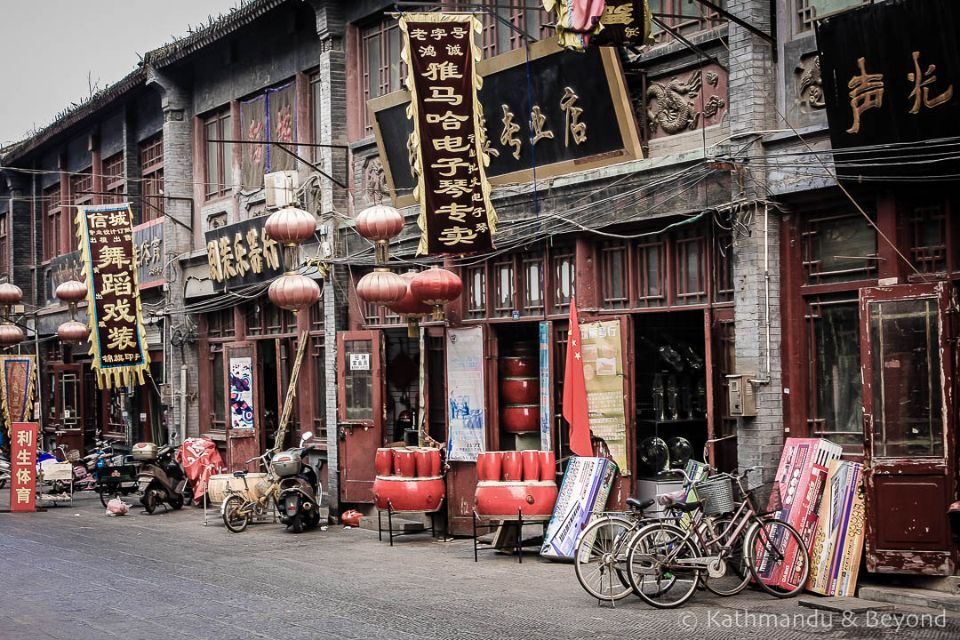
Luoyang Old Town also known as the Historical and Cultural Ancient Street of Luoyang Old Town, is the best place to find the remaining ancient architecture, explore the profound Heluo culture, admire the local life and art, and taste local food and snacks.
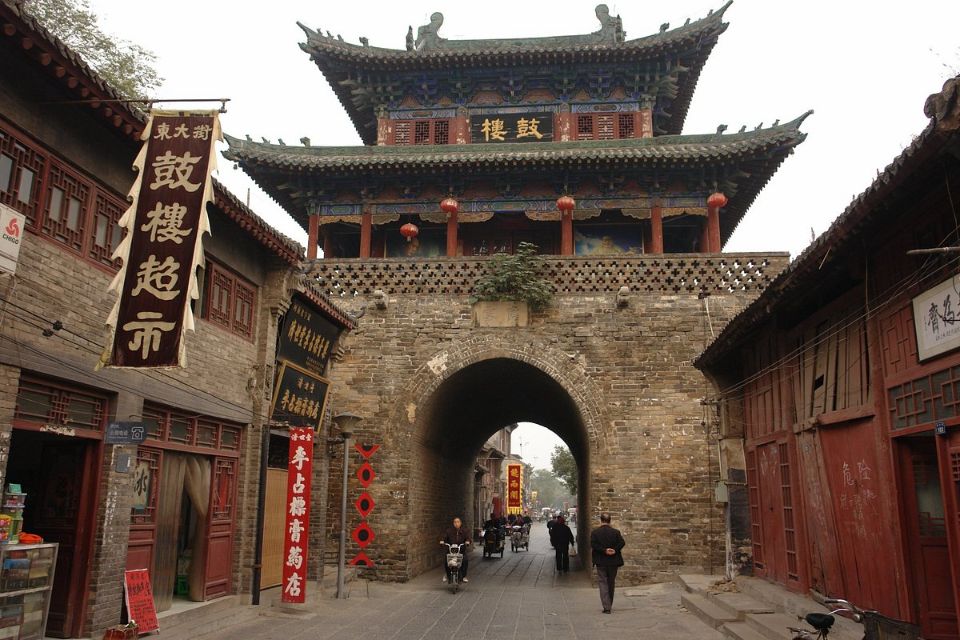
When entering Luoyang Old Town from Lijing Gate, you will be overwhelmed by the bustling life of local people. This area has a folk art museum that displays local artworks such as paper cutting, local clothing and other local artworks. There are two types of streets in the old town: shopping streets and residential streets. The prosperous ancient shopping streets have many small shops built in many floors along both sides. If you are interested in peony paintings, three-color glazed ceramics of the Tang Dynasty, you can buy them here. The residential streets are old and narrow, with many small shops and old apartments on both sides. Besides, you can visit the Muslim community, taste local food in the old town.
Luoyi Ancient Town
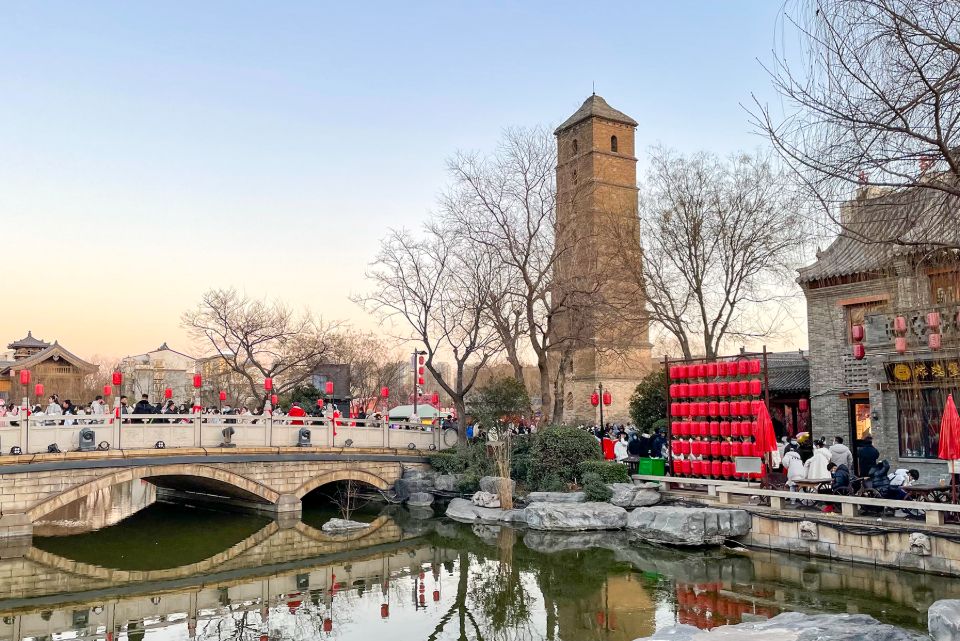
Luoyi Ancient Town is located in the old town of Luoyang City. It is based on the architectural styles of the Tang, Song, Yuan, Ming, Qing and Republic of China dynasties and the ruins of the ancient city wall of the Jin and Yuan dynasties.
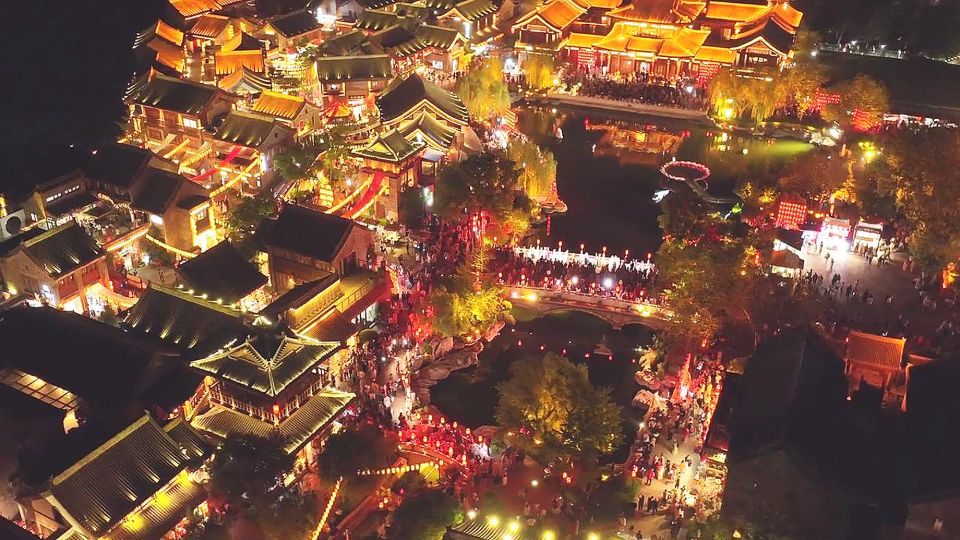
The town park is scientifically divided into many different functional areas, collecting and displaying the scenery of the thousand-year-old ancient city, gradually bringing a strong humanistic atmosphere, and developing and inheriting the original cultural landscape of Luoyi Ancient Town. It not only has profound cultural heritage, but also combines comprehensive business forms such as tourism, catering, accommodation and entertainment, integrating culture, tourism, commerce, entertainment and resort.
Yingtianmen
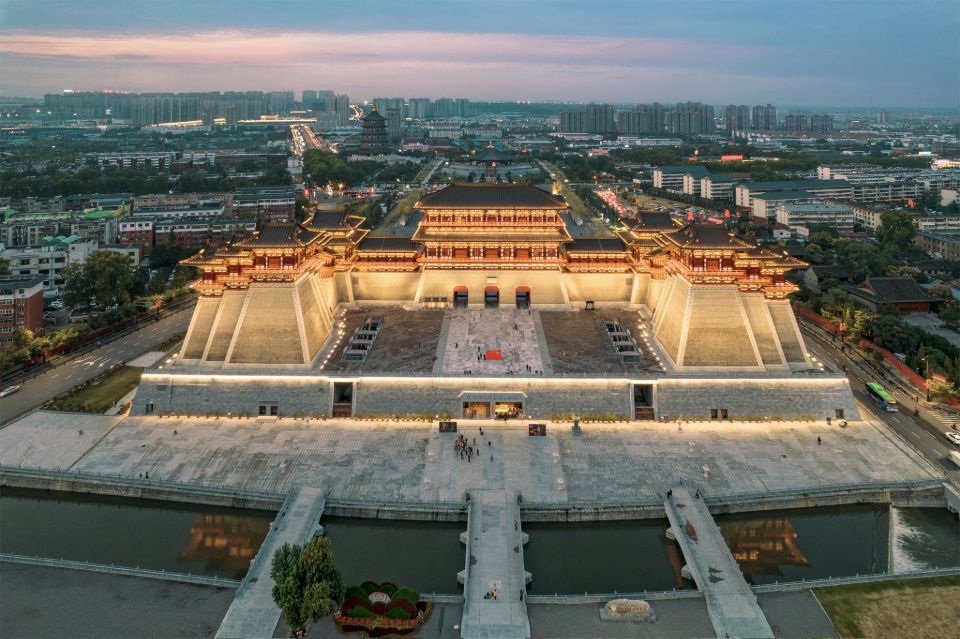
Yingtianmen is the south gate of the Luoyang City Palace during the Sui and Tang Dynasties. Historically, Yingtianmen was the highest standard city gate in ancient China.
This gate witnessed the prosperity and power of the Sui and Tang Dynasties. When the night falls, Yingtianmen is splendid and brilliant, making people feel like they have returned to the glorious Tang Dynasty.
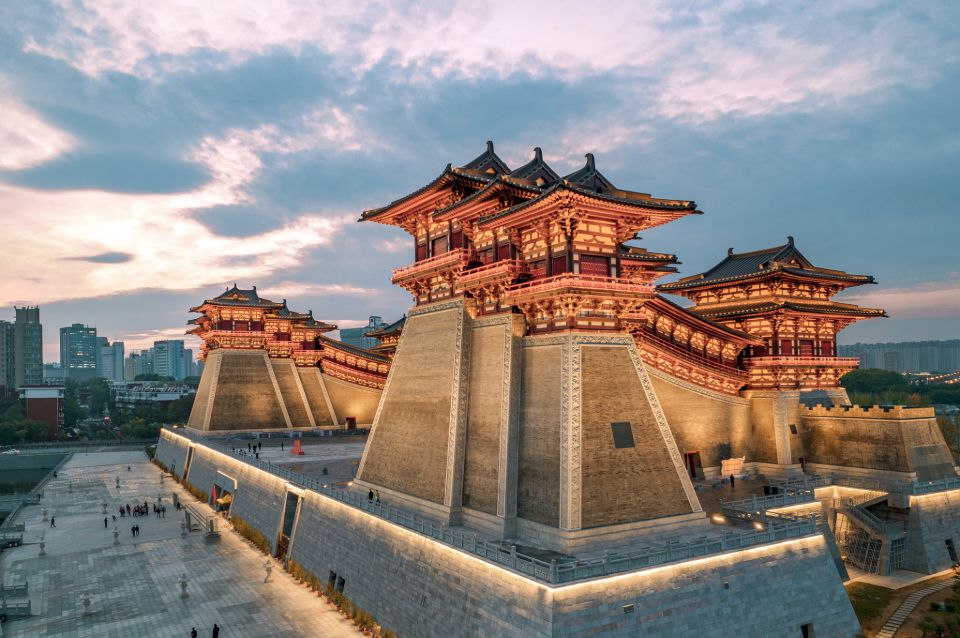
Chongdugou
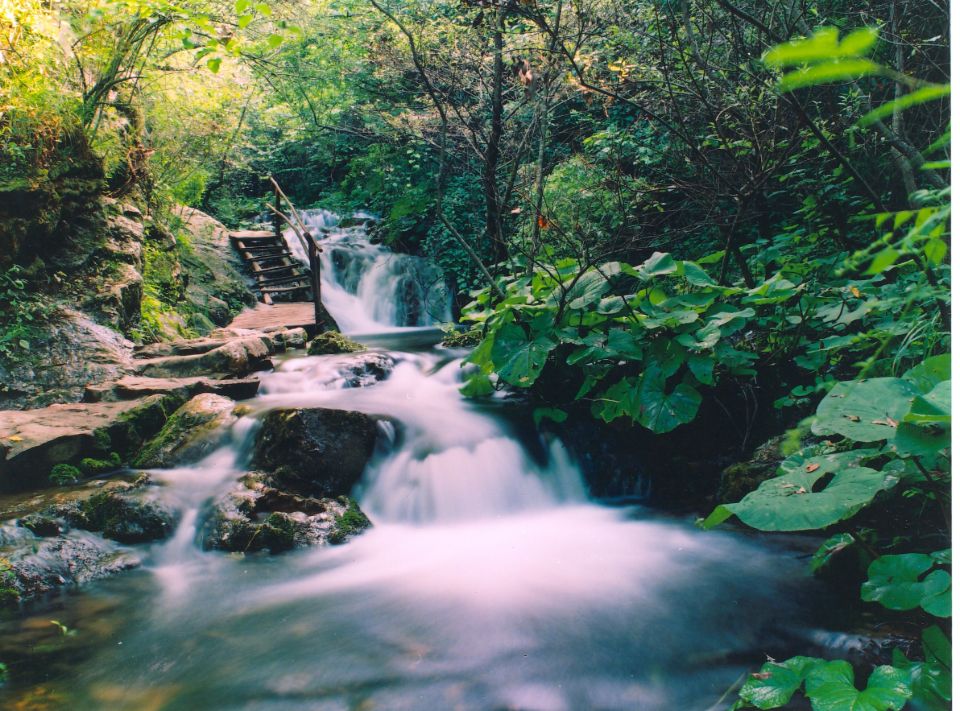
Chongdugou Scenic Area is located in Luanchuan District, Luoyang City. It is named after Liu Xiu, Emperor Guangwu of the Eastern Han Dynasty, who passed Yishui for the second time. The natural scenery here is very beautiful, with intertwined mountains and rivers, lush bamboo forests and clusters of waterfalls, known as the “Northern Water Town”.
The scenic spot include two main areas, Nangou and Xigou, famous for their waterfalls and streams. The main landscapes include the Water Curtain Fairy Palace, waterfalls and streams, Gaoxia Pinghu, etc. Xigou is dominated by lush bamboo forests, with thousands of acres of bamboo forests covering the sky and sunlight, forming a unique bamboo sea landscape.
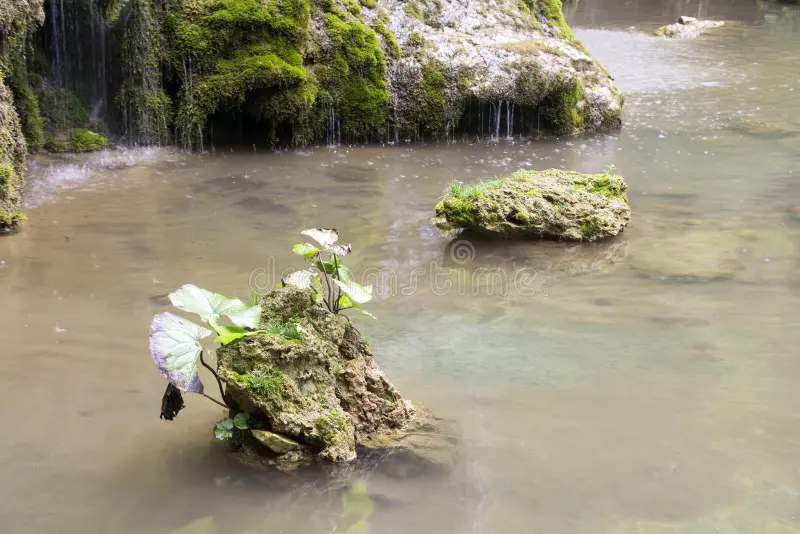
Visitors can stroll along the paths in the bamboo forests, listen to the sound of bamboo, admire the bamboo scenery, taste the fragrance of bamboo, and feel the peace and harmony of nature.
What to eat?
Shui Xi (Water Feast)
Shui Xi is a banquet of dishes, consists of an astounding 24 dishes cooked in various broths, most visitors to Luoyang have enjoyed this dish. Appearing for more than 1000 years old and is a unique dish only available in Luoyang. A table of Thuy Tich will be divided into 24 small portions.
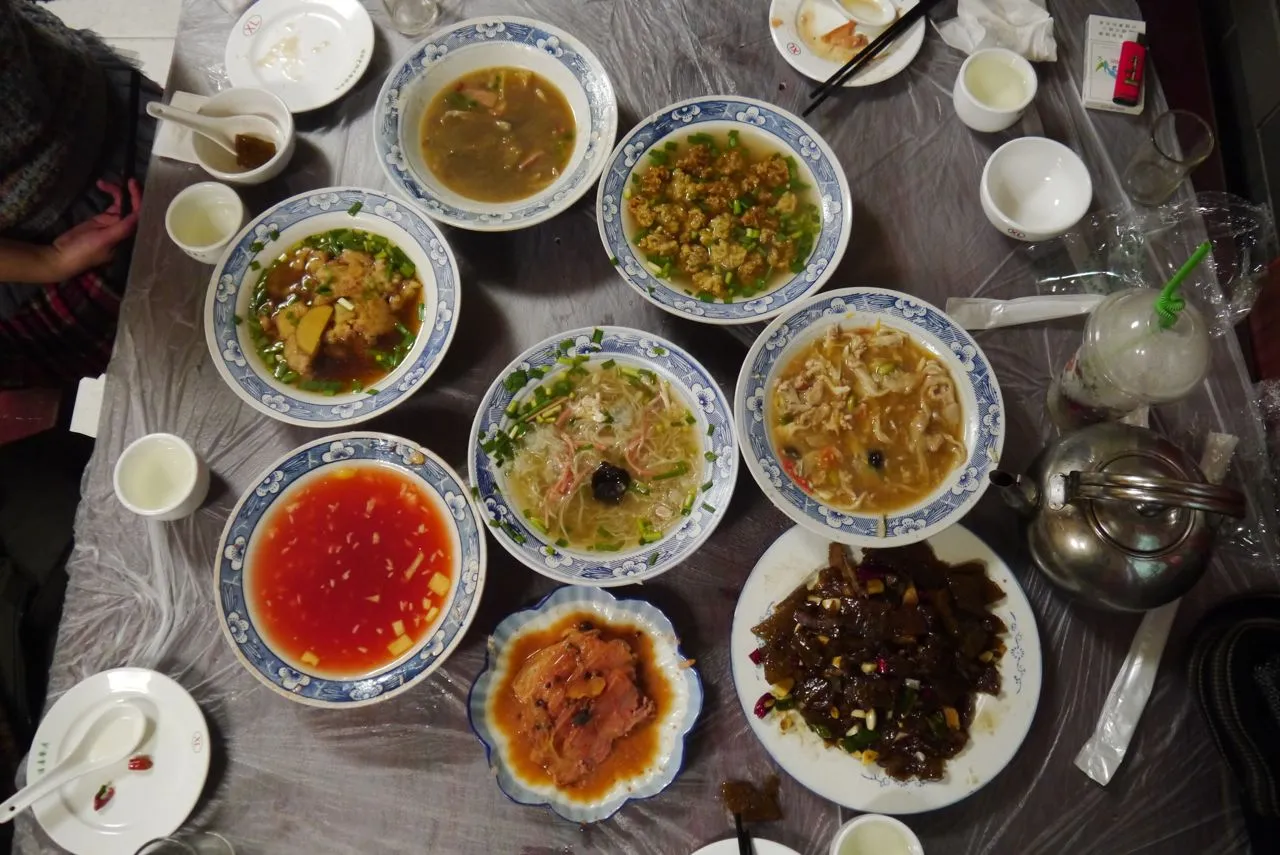
Thuy Tich is cooked like Vietnamese soup, with many different flavors for you to choose from. Cooked on charcoal, it is a combination of meat, vegetables and other ingredients creating a unique and unforgettable flavor.
The place that sells the most of this dish is Lijing Gate walking street, located right in the center of Luoyang city. The price of these portions ranges from 20 – 50 Yuan, equivalent to about 70,000 – 170,000 VND.
Lamb soup
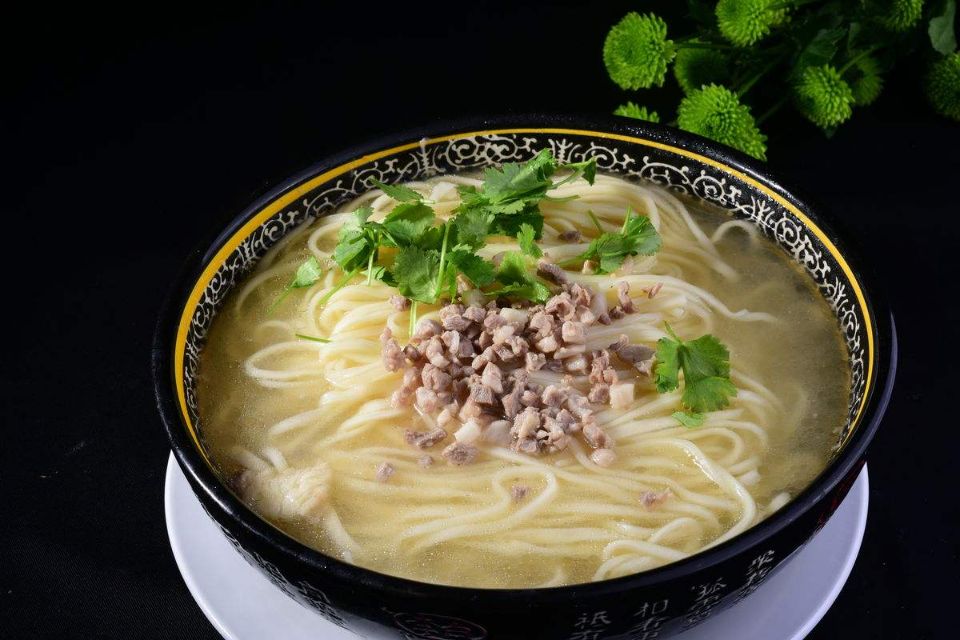
Mutton soup is one of the most representative delicacies in Luoyang. This soup uses tender lamb as the main ingredient, combined with fresh vegetables and unique spices. It has a delicious taste and is full of rich soup aroma. Whether it is the cold of winter or the scorching heat of summer, mutton soup can make people feel refreshed.
Baked lamb buns
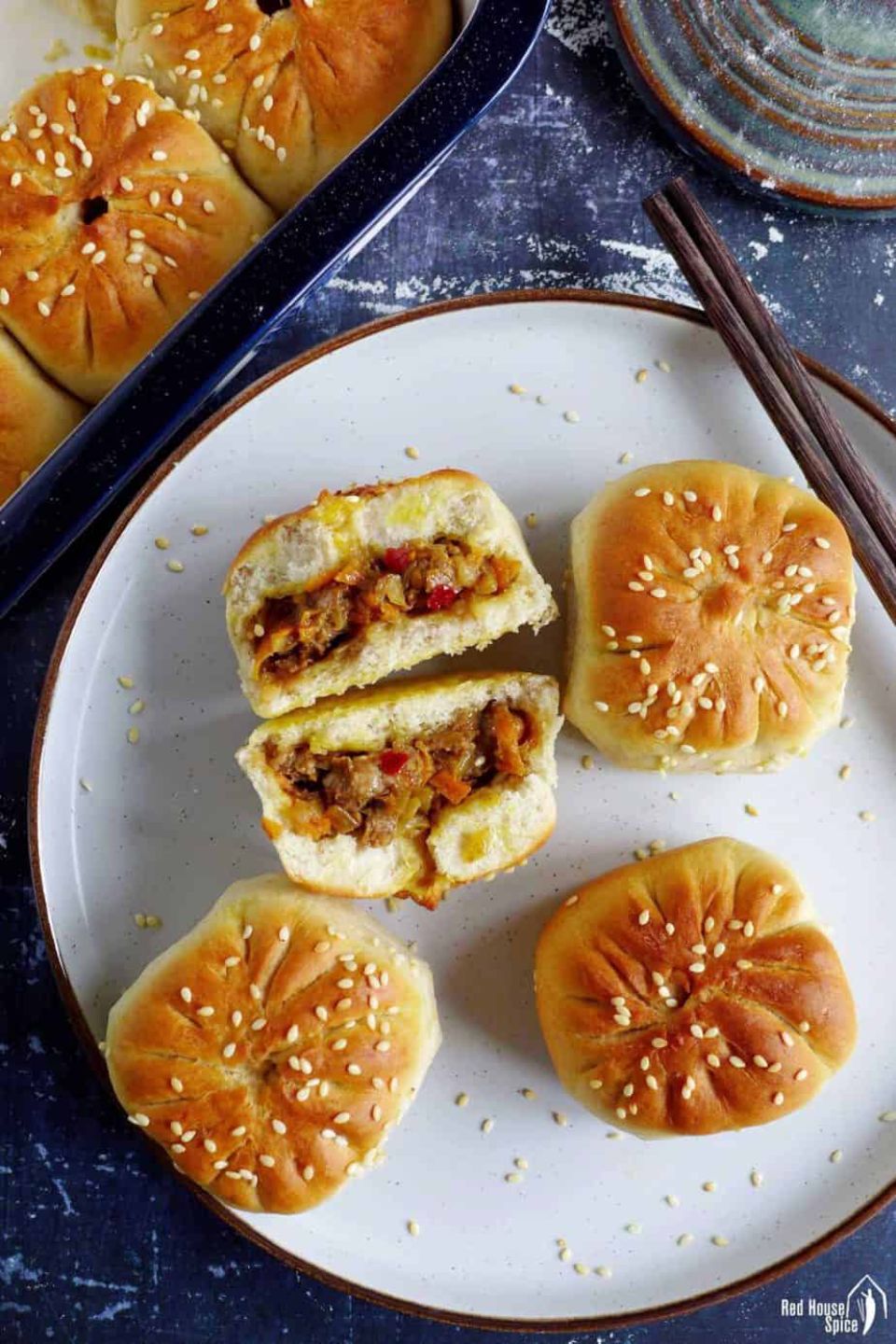
Baked lamb buns are a popular delicacy in Luoyang in winter, and are loved for their delicious soup and tender lamb. Making steamed lamb buns requires the use of fresh lamb, and the steamed buns are simmered for a long time so that the umami flavor of the lamb is deeply absorbed into the soup, and then combined with coriander, chopped green onions and other spices to form an attractive dish.
Beef soup
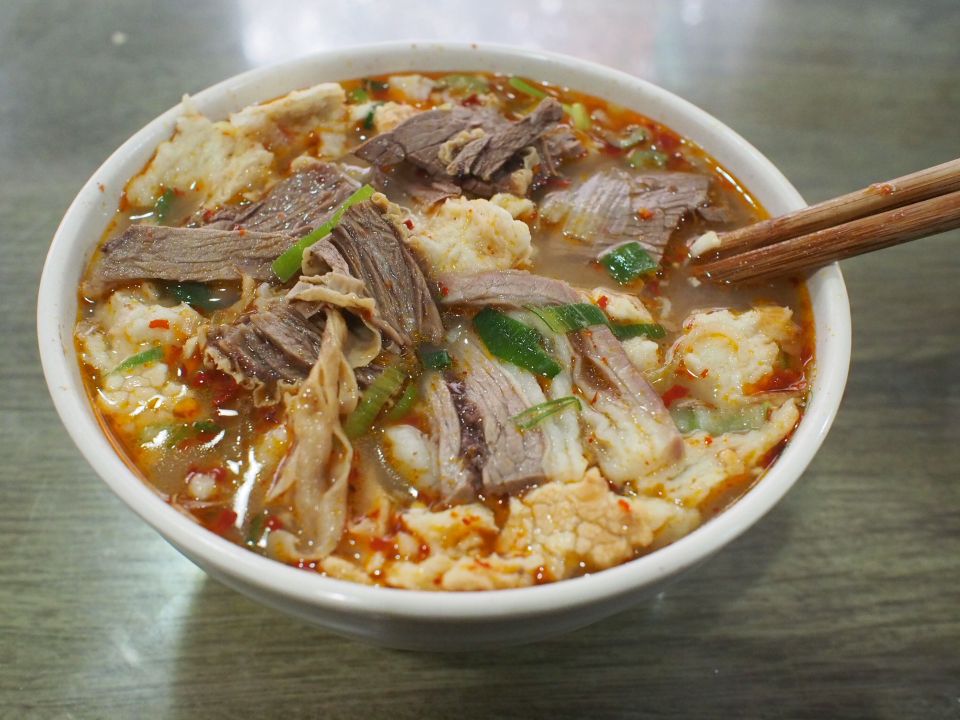
In Luoyang, many people have the habit of eating a bowl of hot beef soup for breakfast. Luoyang Beef Soup uses fresh beef and beef bones. After a long cooking time, the soup is soft and fragrant, the beef is tender and juicy. Combined with chopped green onions, coriander and other spices.
Guon Braised Noodles
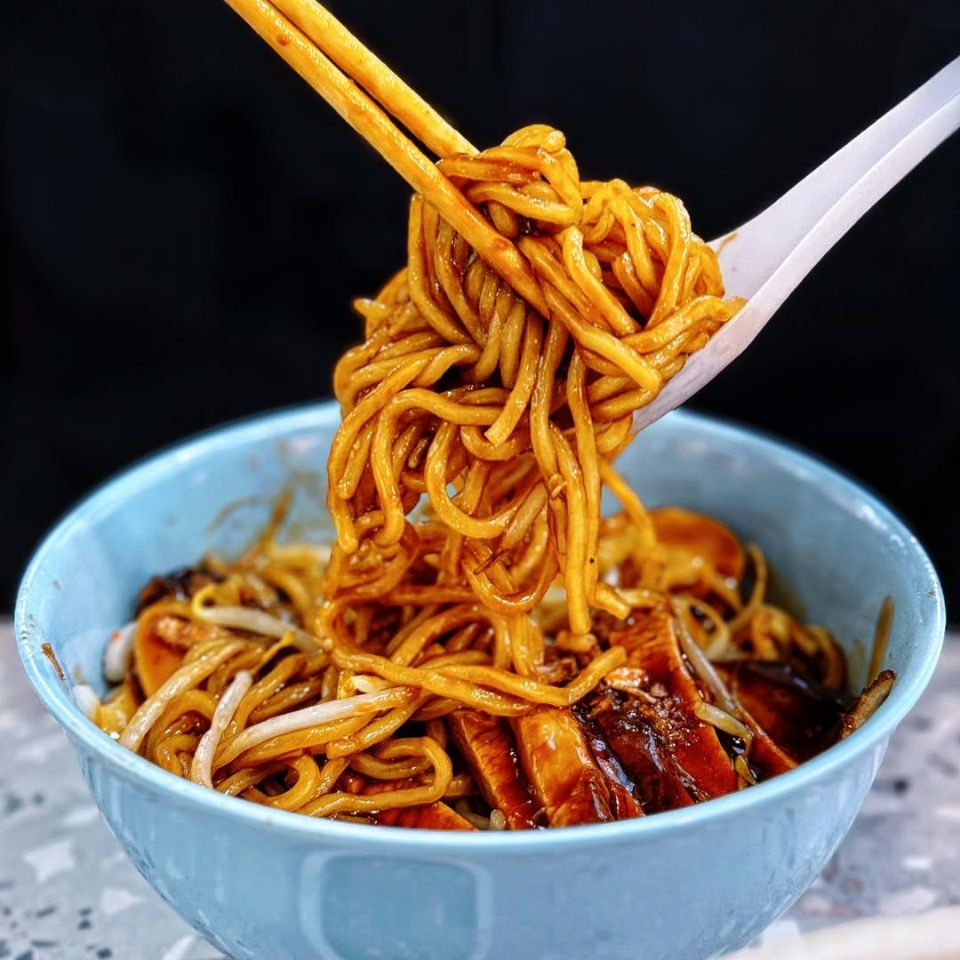
Braised noodles are one of Luoyang’s traditional noodle dishes, famous for their chewy noodles and rich soup. To make braised noodles, you need to use high-quality flour and broth made from various ingredients, and then combine them with various side dishes such as tofu skin, shredded kelp, etc. The chewy noodles and rich, delicious soup make you want to eat more.
The first hot dish – Bird Nest
Legend has it that this name was given by Wu Zetian – the only female emperor in Chinese history. The main ingredients are white radish, sea cucumber, squid and chicken. But when cooked, the ingredients are shaped like peony flowers floating on the broth. The dish is beautiful and delicious, winning the hearts of many diners.
Meatball Soup
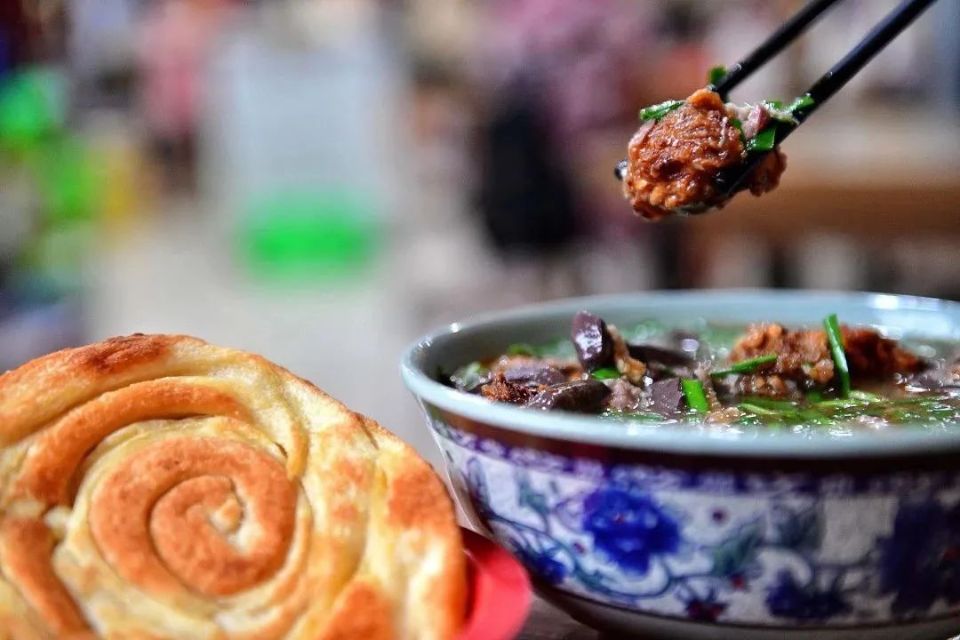
Luoyang Meatball Soup is one of the eight major soups in Luoyang and is loved for its rich variety of meatballs and vegetables. To make meatball soup, you need to use high-quality meat and vegetables to make the meatballs tender and juicy, and then add a variety of vegetables such as tofu, shiitake mushrooms, etc. to make the soup rich in flavor and nutritious.
Pan Jin He Roasted Chicken
Pan Jin He Roasted Chicken is a long-standing brand in Luoyang, famous for its crispy skin, tender meat, bright red color and mellow flavor. It uses high-quality local chicken and is carefully processed through many processes. The roasted chicken skin is golden and crispy, the inside is tender, juicy, and melts in your mouth. Whether served as a side dish or a main dish for a family dinner, Pan Jin and Roasted Chicken are both great choices.
Roujiamo
Roujiamo is one of the favorite snacks of Luoyang people, famous for its crispy dumplings and delicious meat filling. Making Roujiamo requires the use of high-quality flour and pork. After careful production techniques, the dumplings are crispy on the outside and soft on the inside, with tender and juicy meat. Combined with chopped green onions, sesame and other spices, it is crispy and delicious when bitten, leaving you with an endless aftertaste.
Carp Leaping over the Dragon Gate
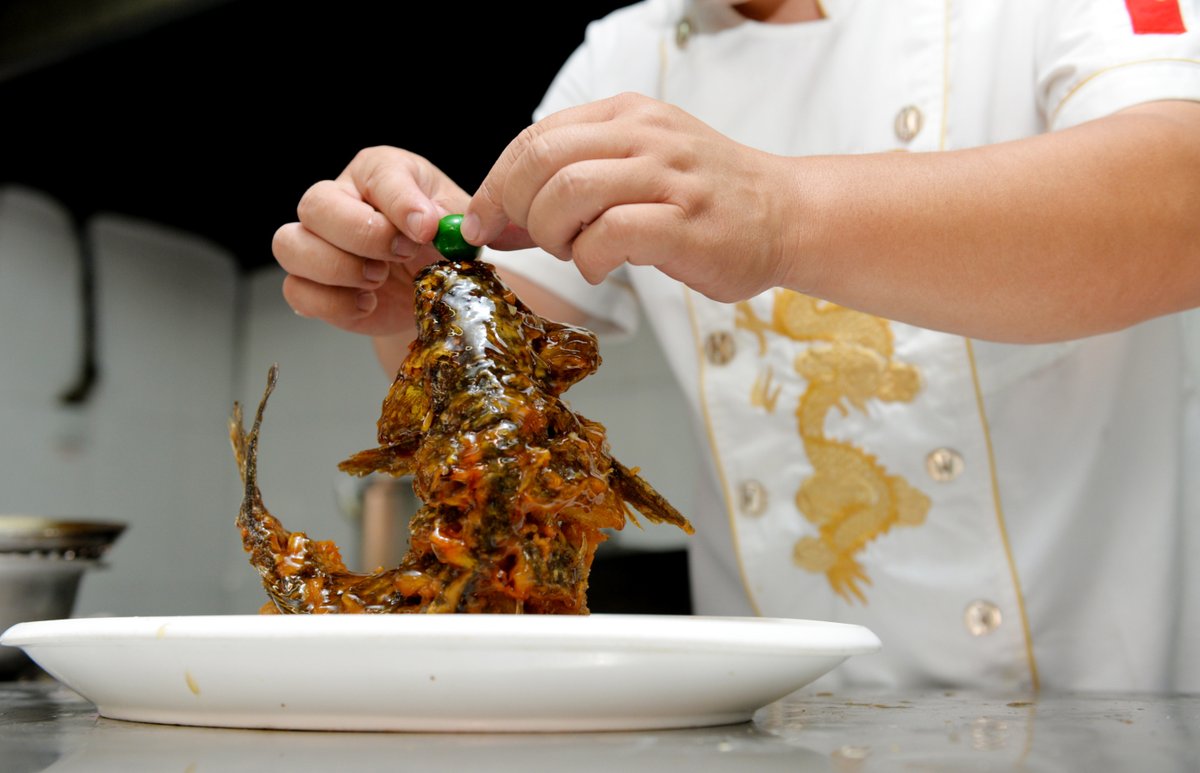
Carp Jumping Over the Dragon Gate is a famous dish in Luoyang with auspicious meaning. It is carefully cooked with the main ingredient being a large carp from the Yellow River. This dish not only tests the chef’s culinary skills but also contains profound cultural significance. The meat of the Yellow River carp is tender and delicious, after being fried crispy on the outside and soft on the inside, it is then drizzled with special sauce. When you enjoy this dish, you can feel the ambition and pride of the carp jumping over the dragon gate.
Malatang Luoyang
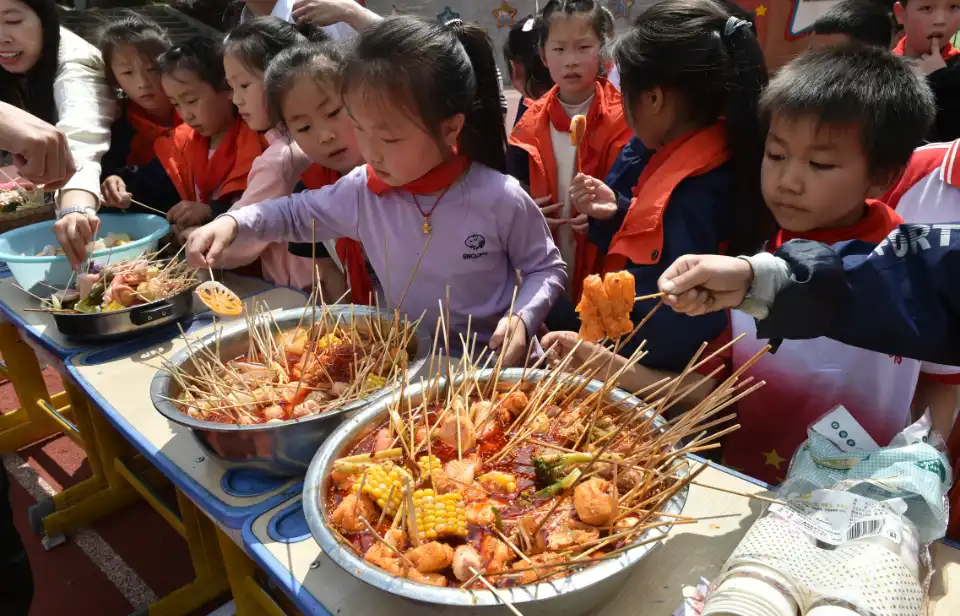
Malatang is a delicacy that has quickly become popular in Luoyang in recent years. It uses a variety of vegetables, meat and seafood as the main ingredients, combined with a spicy and delicious soup, leaving diners with endless aftertaste. On the streets and alleys of Luoyang, you can always see people lining up to try Malatang, which shows that this dish is very popular.
Peony flower Cake
Peony Cake is a specialty snack inspired by peony flowers and is loved for its unique flavor and beautiful appearance. To make peony cake, you need to use high-quality flour and fillings such as bean flour, lotus flour, etc. and then bake with meticulous techniques. The cake crust is crispy and delicious, the filling is just the right amount of sweet.
Tang Huo Shao
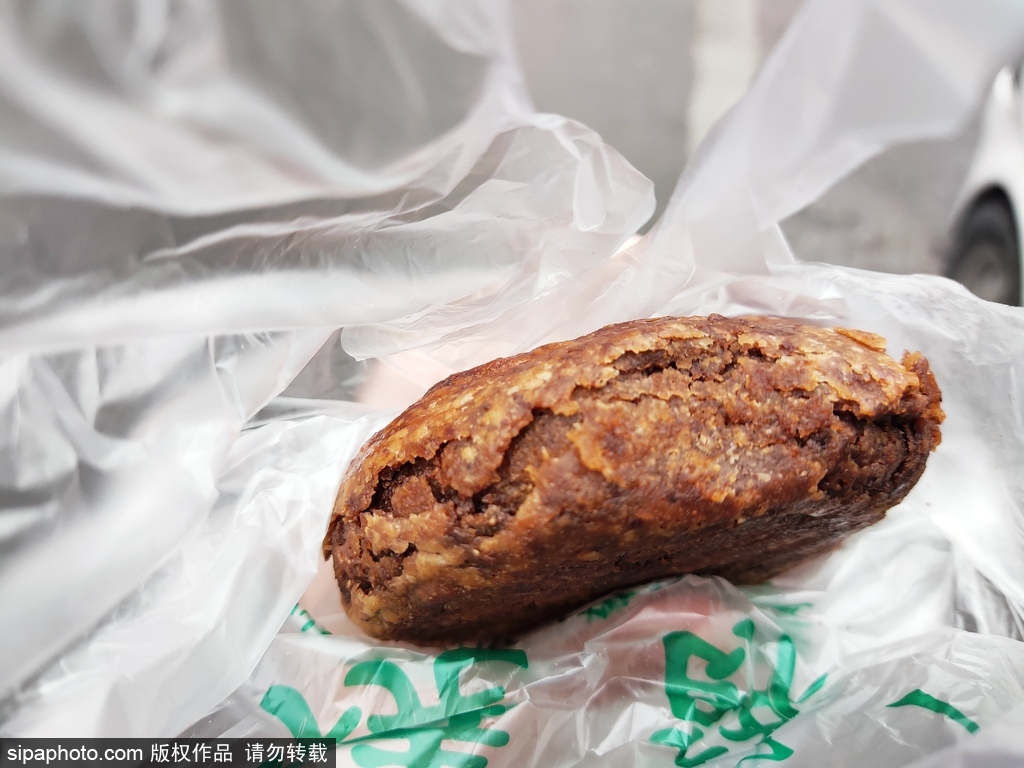
Tang Huo Shao is one of the traditional sweets of Luoyang, famous for its crispy outer shell and sweet inside. It is one of the indispensable delicacies of Luoyang people during festivals such as Spring Festival and weddings. Whether you share it with family and friends or enjoy it alone, the sugar fire can bring you a feeling of complete happiness.
How much is the price of a Luoyang trip?
The specific cost depends on many factors, including the mode of transportation, accommodation standards, food and drink consumption, and choice of entertainment options.
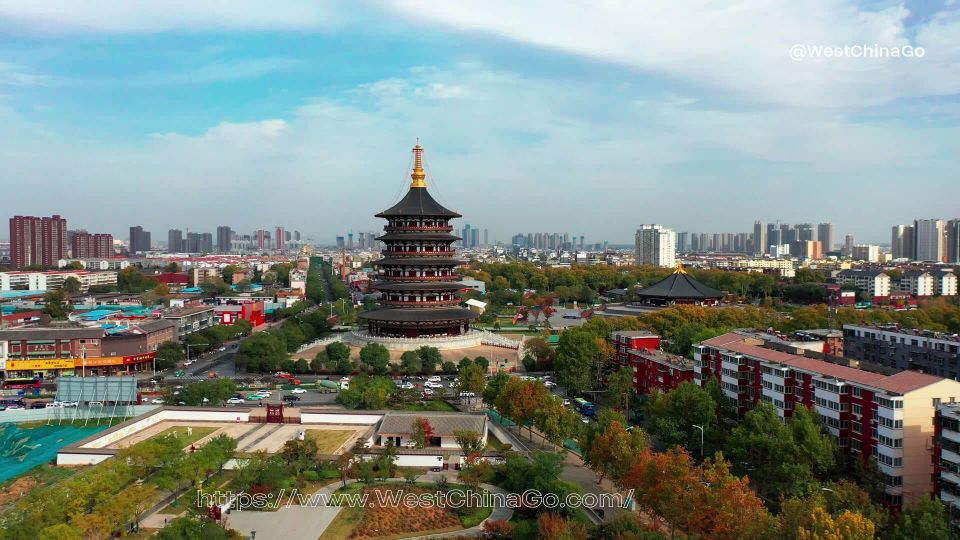
Transportation costs
- High-speed rail: Departing from different cities, the one-way ticket price ranges from several hundred yuan, and the round-trip ticket price needs to be calculated based on the specific ticket price.
- Flights: Airfares will vary depending on the season and booking time, but typically range from a few hundred yuan to a thousand yuan.
- Self-driving: You need to consider additional costs such as gas and tolls.
Accommodation costs
- The price of a budget hotel or guesthouse is around 100 yuan to 300 yuan per night.
- Mid- to high-end hotels can cost more than 500 yuan per night.
Food costs
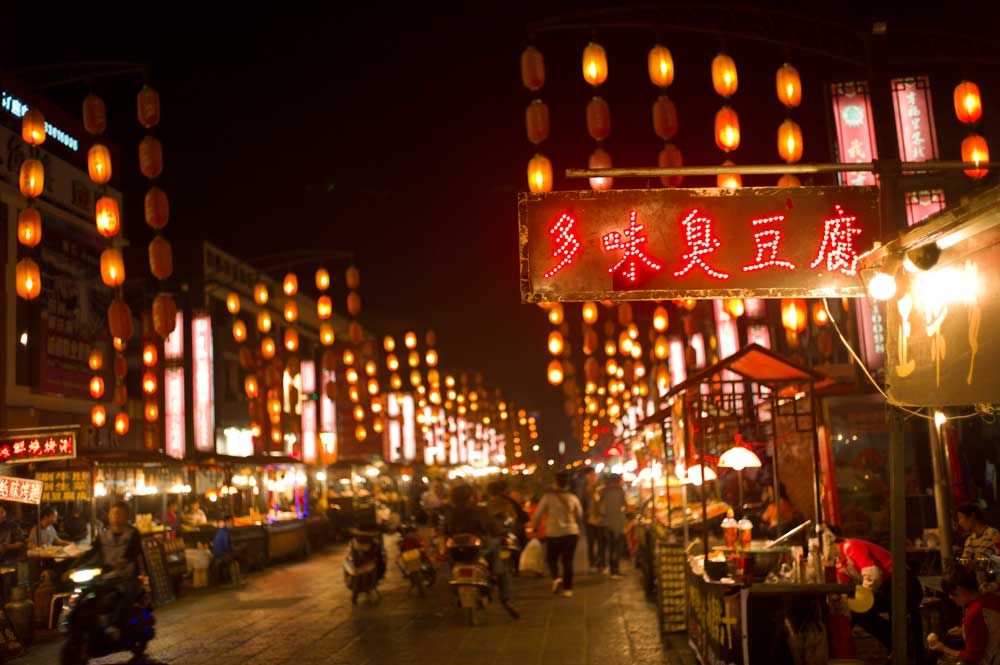
The average per-person consumption for each meal ranges from 30 yuan to 100 yuan, depending on the dining location and food selection.
Admission fees
Luoyang has many attractions, many of which require tickets. For example, the ticket price to Longmen Grottoes starts from 90 yuan, the ticket price to Laojun Mountain Scenic Area starts from 100 yuan, the ticket price to Baima Temple is 35 yuan, etc.
In addition, there are some free attractions such as Luoyang Museum, Luoyi Ancient Town, etc. Depending on the itinerary, the transportation cost is about 200 yuan to 500 yuan.
In summary, the total cost of a 5-day, 4-night Luoyang travel itinerary will vary according to personal choice and actual circumstances, but a rough estimate can be between 5,000 yuan and 7,000 yuan (~17,500,000 VND – 24,500,000 VND). You should plan your itinerary in advance and choose the appropriate means of transportation, accommodation and transportation according to your budget and personal needs.
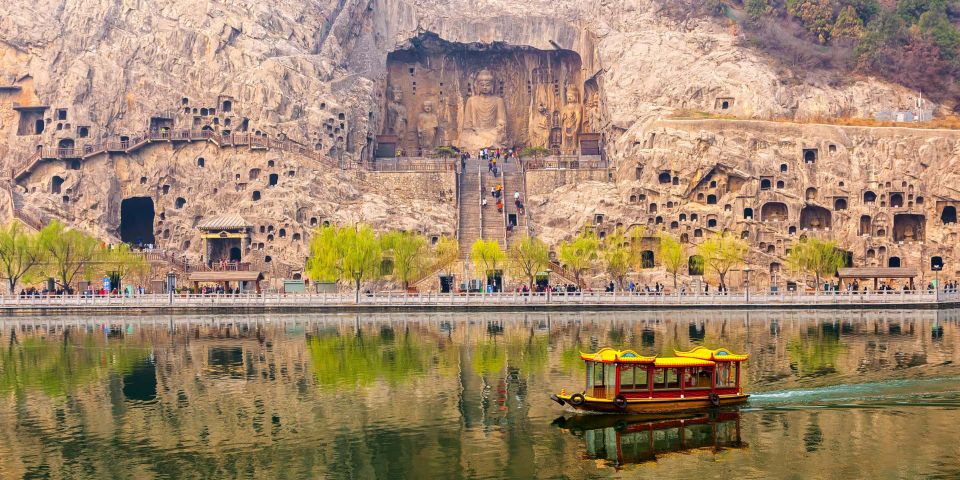
The post is complied by Living Nomads from many different sources. If you find any images or text that belong to you, please contact us, so we can credit you or give us permission to use them. Thank you very much!
If you ask what is beautiful in Luoyang, China, then it will certainly not be enough, because each majestic and magnificent natural landscape in Luoyang has its own beauty in each different season. From the extremely impressive ancient architecture, to the rich cuisine and unique culture, anyone who comes here will be attracted and have unforgettable memories. Above is all the information that you need to prepare before starting your journey to Luoyang in the future.
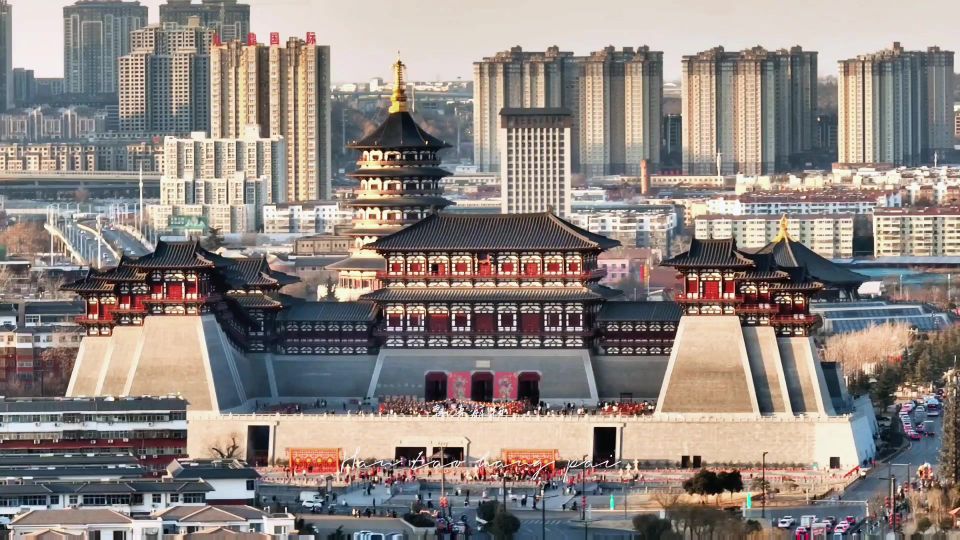
Some best day tours, trips, activities and transfer services, tickets in, from and to Luoyang you can refer to
- Private Guided Luoyang Tour to Longmen Grottoes & White Horse Temple
- 4-Hour Private Walking Tour of Luoyang Longmen Grottoes
- Luoyang, Henan 1-Day Tour (Longmen Grottoes + White Horse Temple)
- Private Tour to Shaolin Temple dand Longmen Grottoes from Luoyang
- Xi’an Private Tour: Louyang Longmen Grottoes&Shaolin Temple by Train
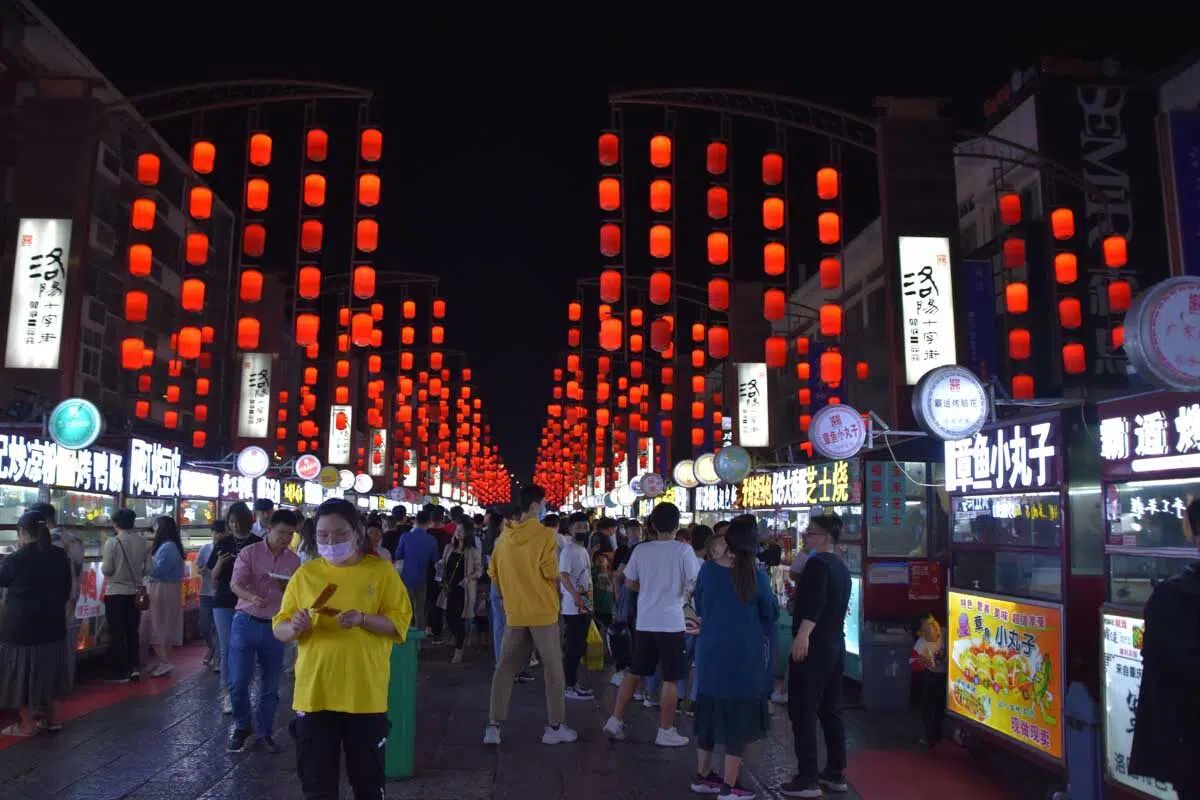
Read more China guide here.

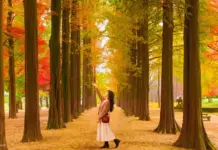

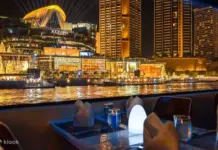
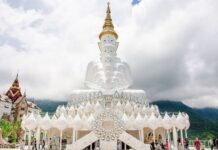
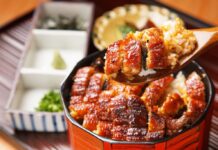
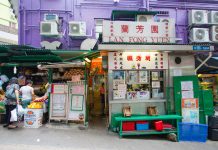
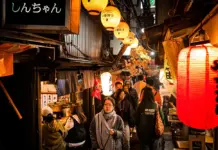
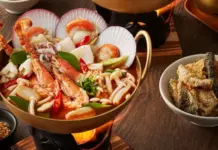

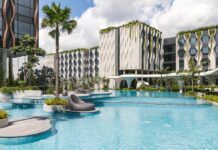

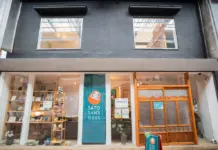
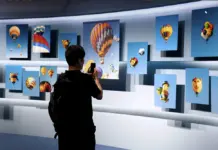

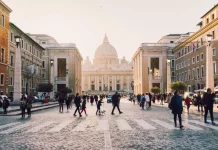
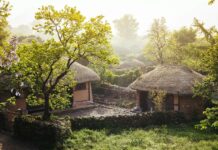

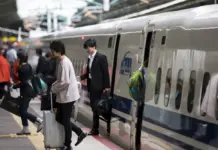
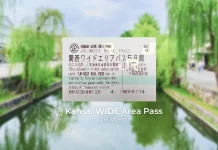

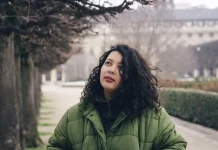
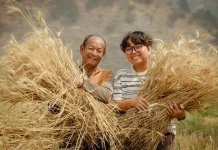
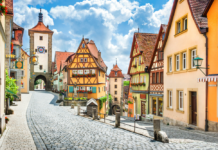



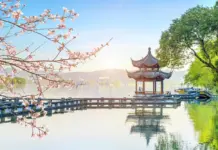

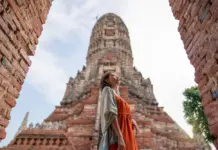
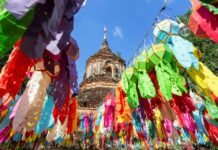
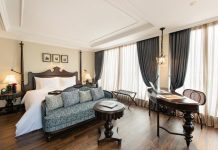
![10 best airports in Asia in 2016 [RANKED] kuala-lumpur-international-airport-best airports in asia in 2016 by skytrax ratings](https://livingnomads.com/wp-content/uploads/2016/08/29/kuala-lumpur-international-airport-best-airports-in-asia-in-2016-by-skytrax-ratings-218x150.jpg)
